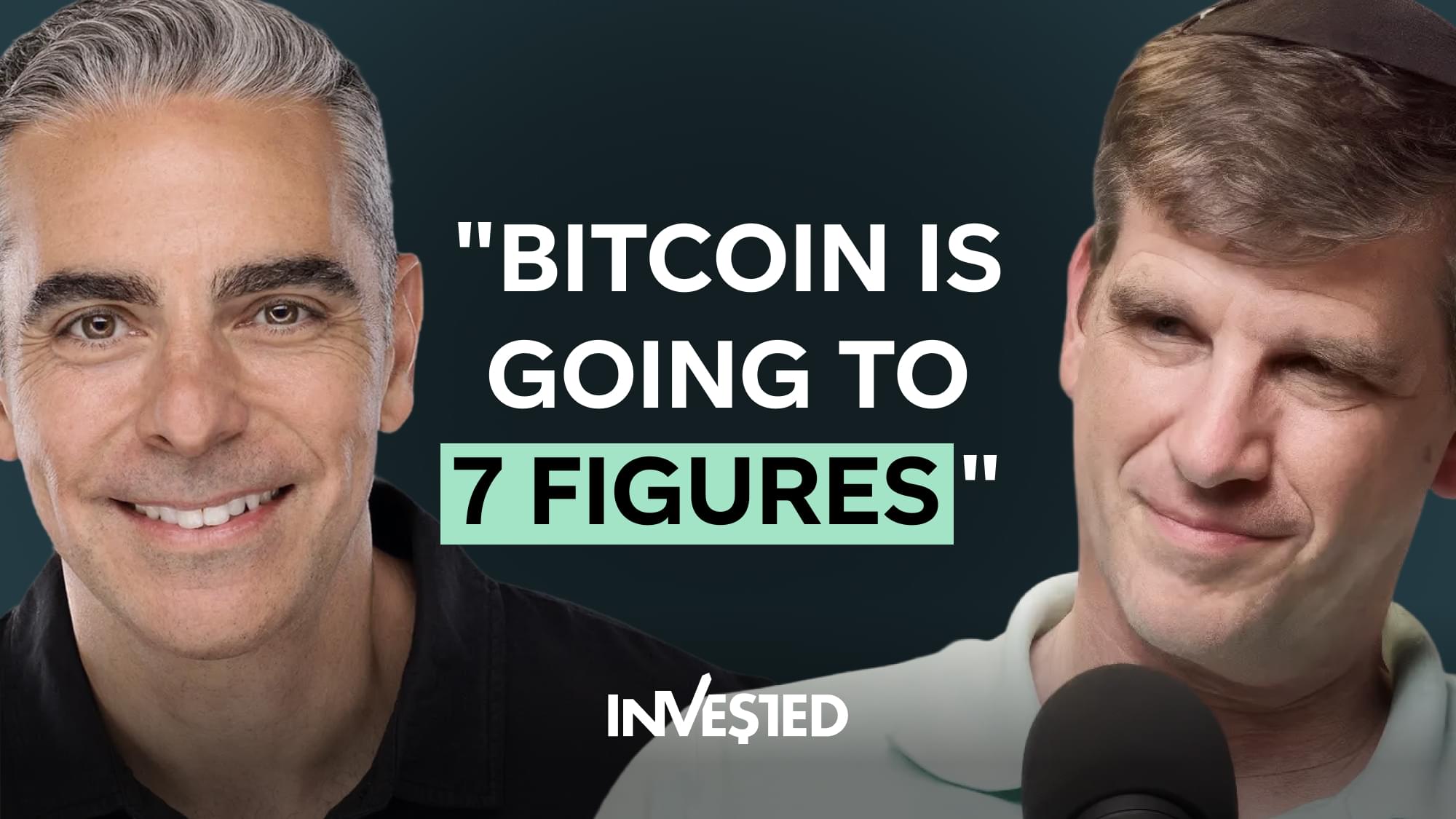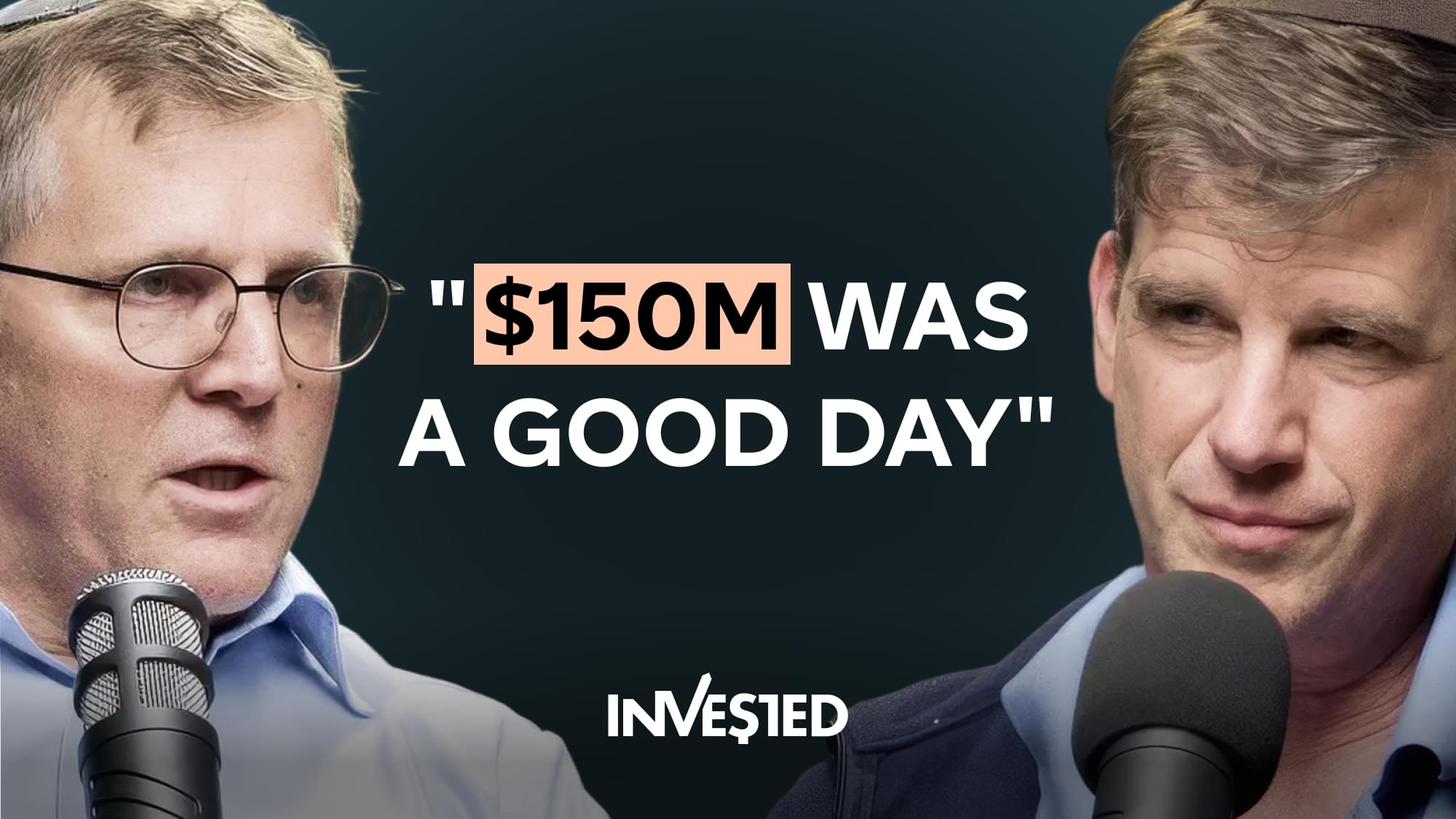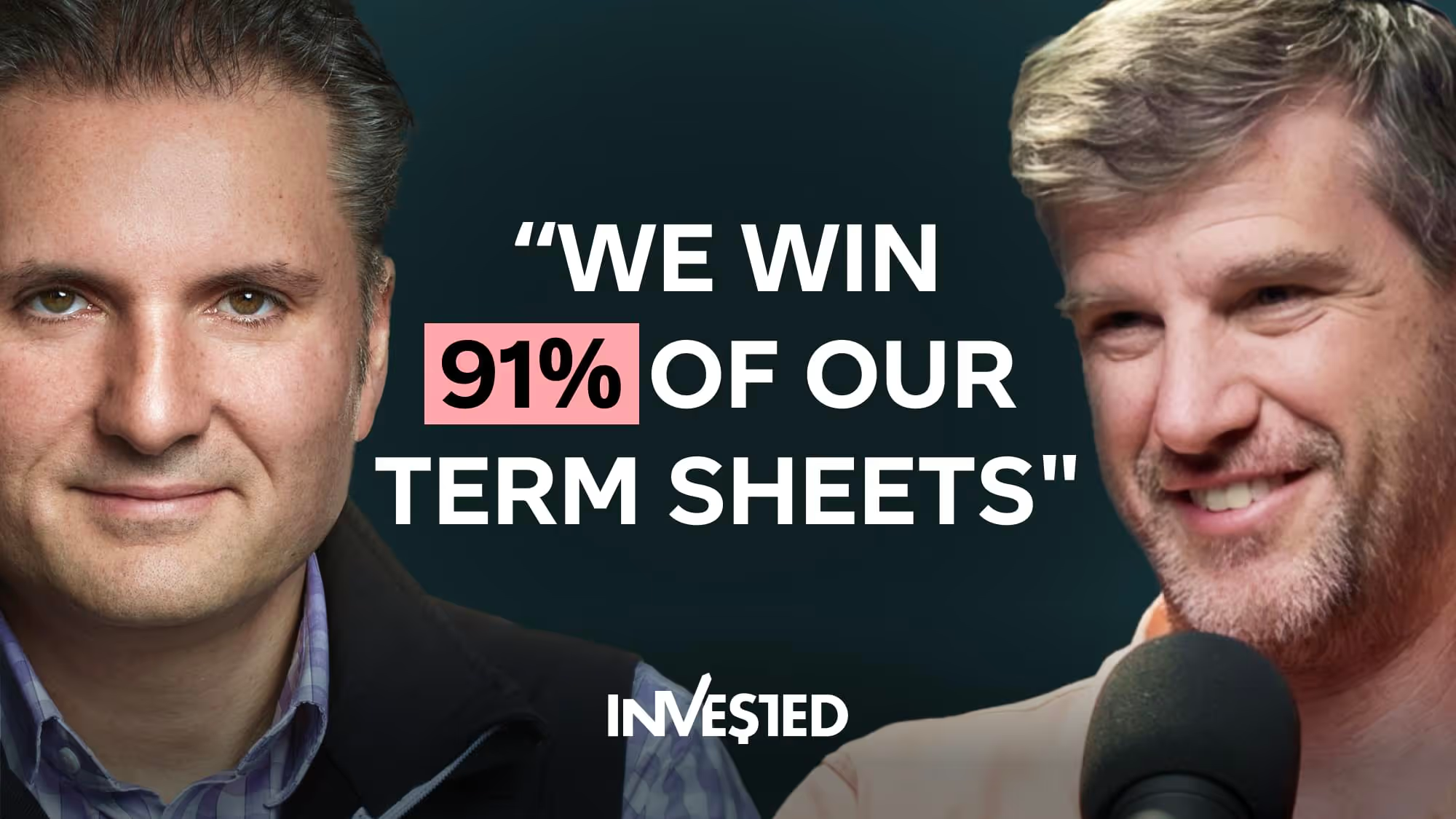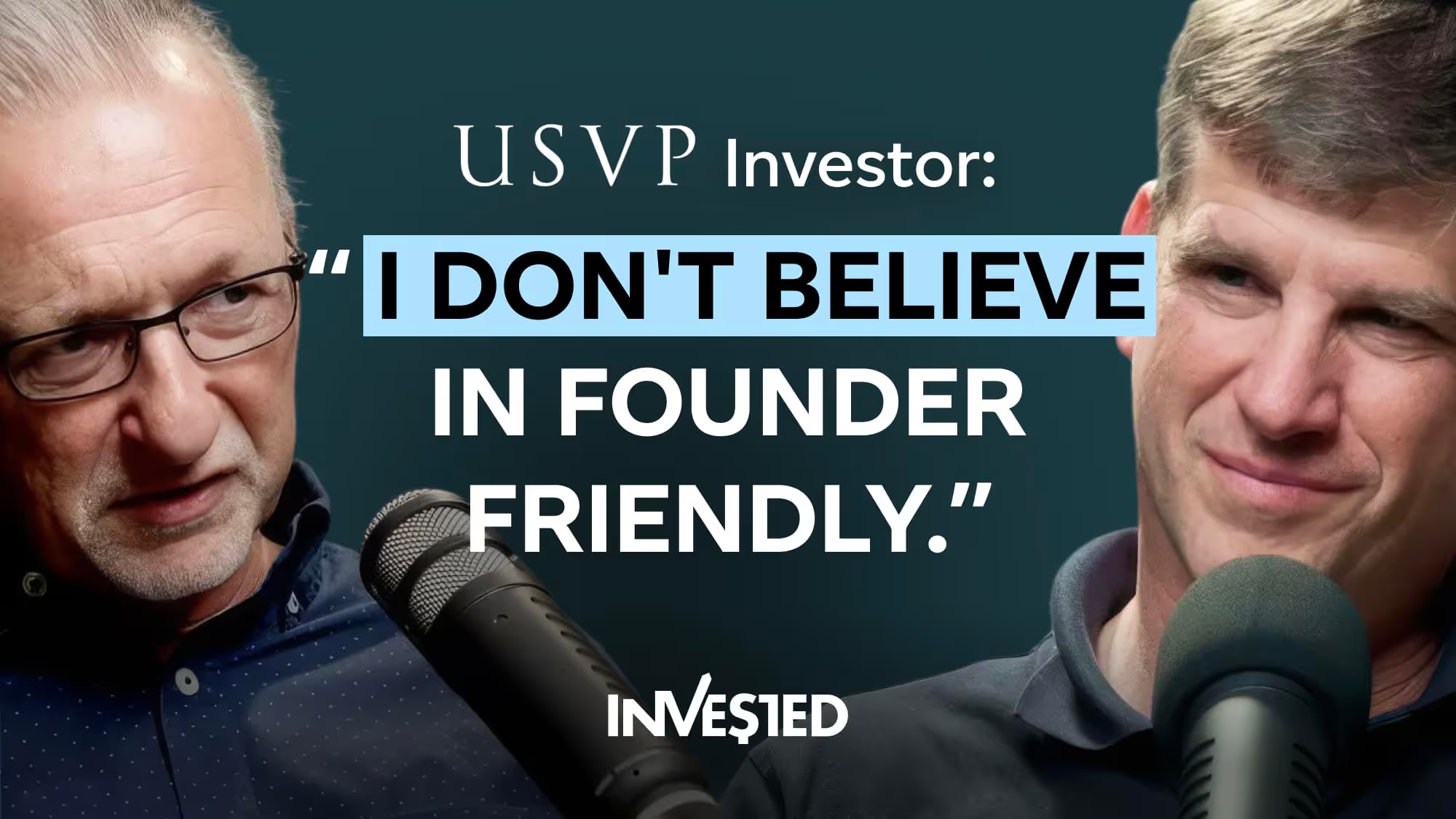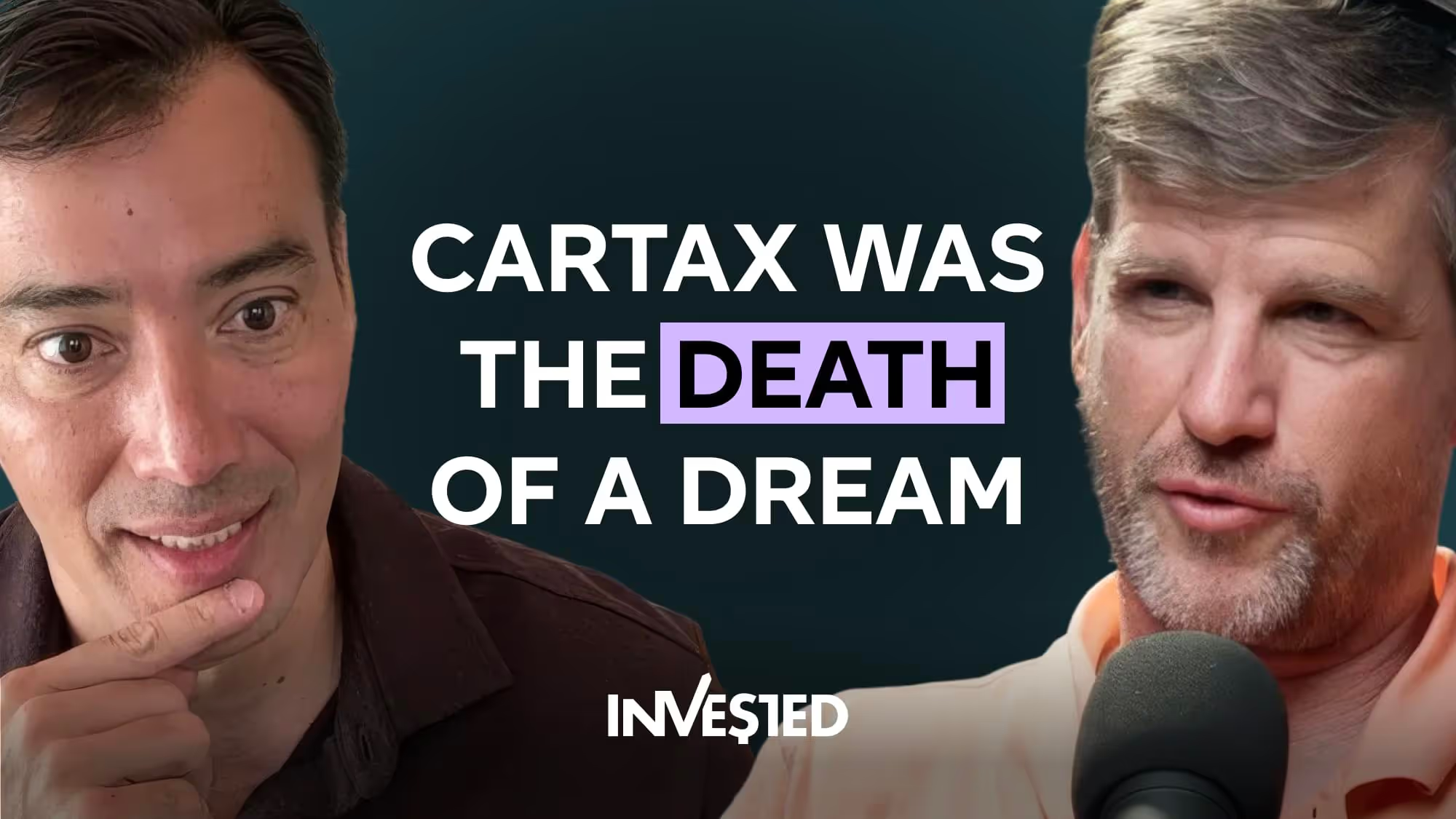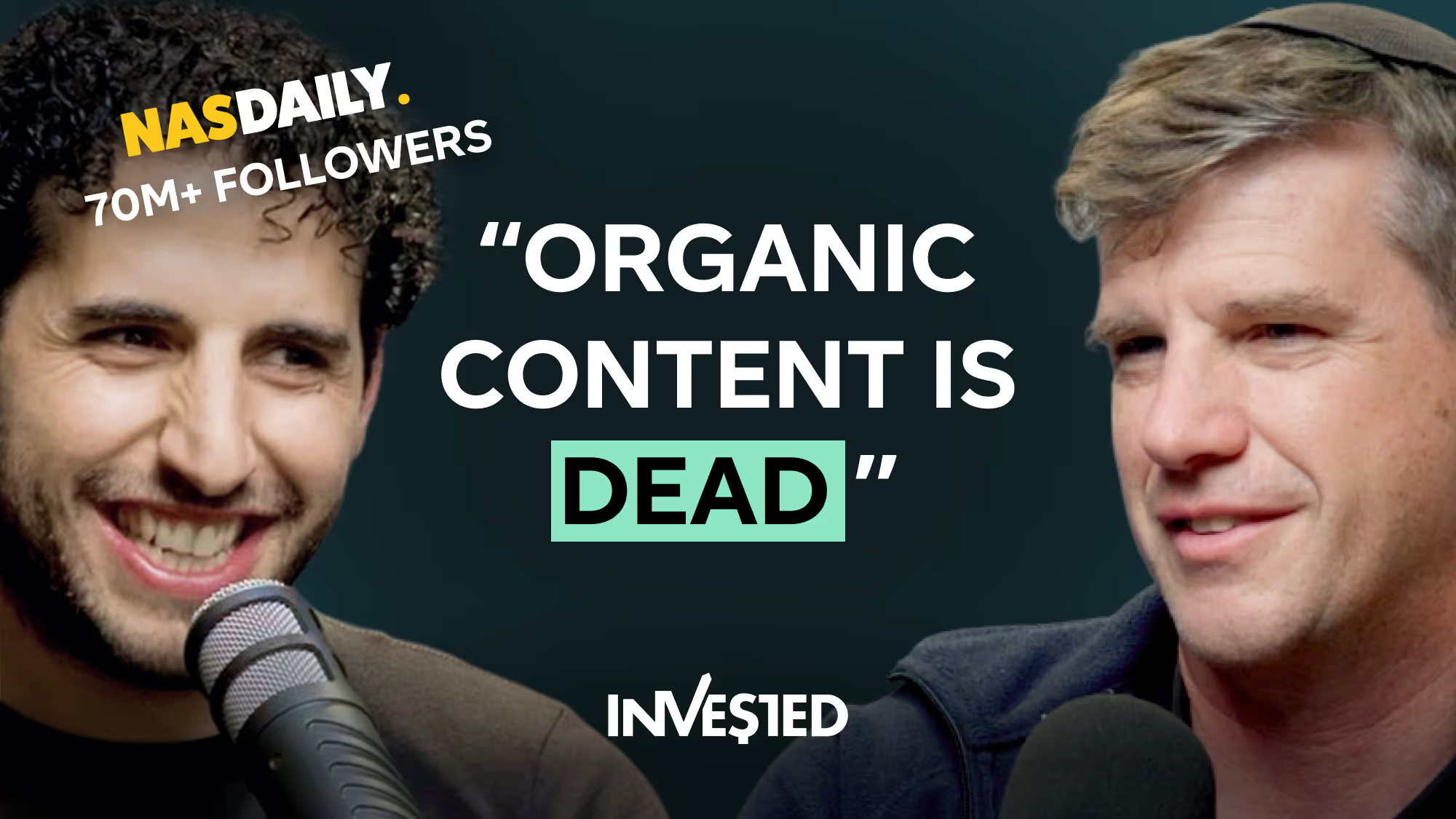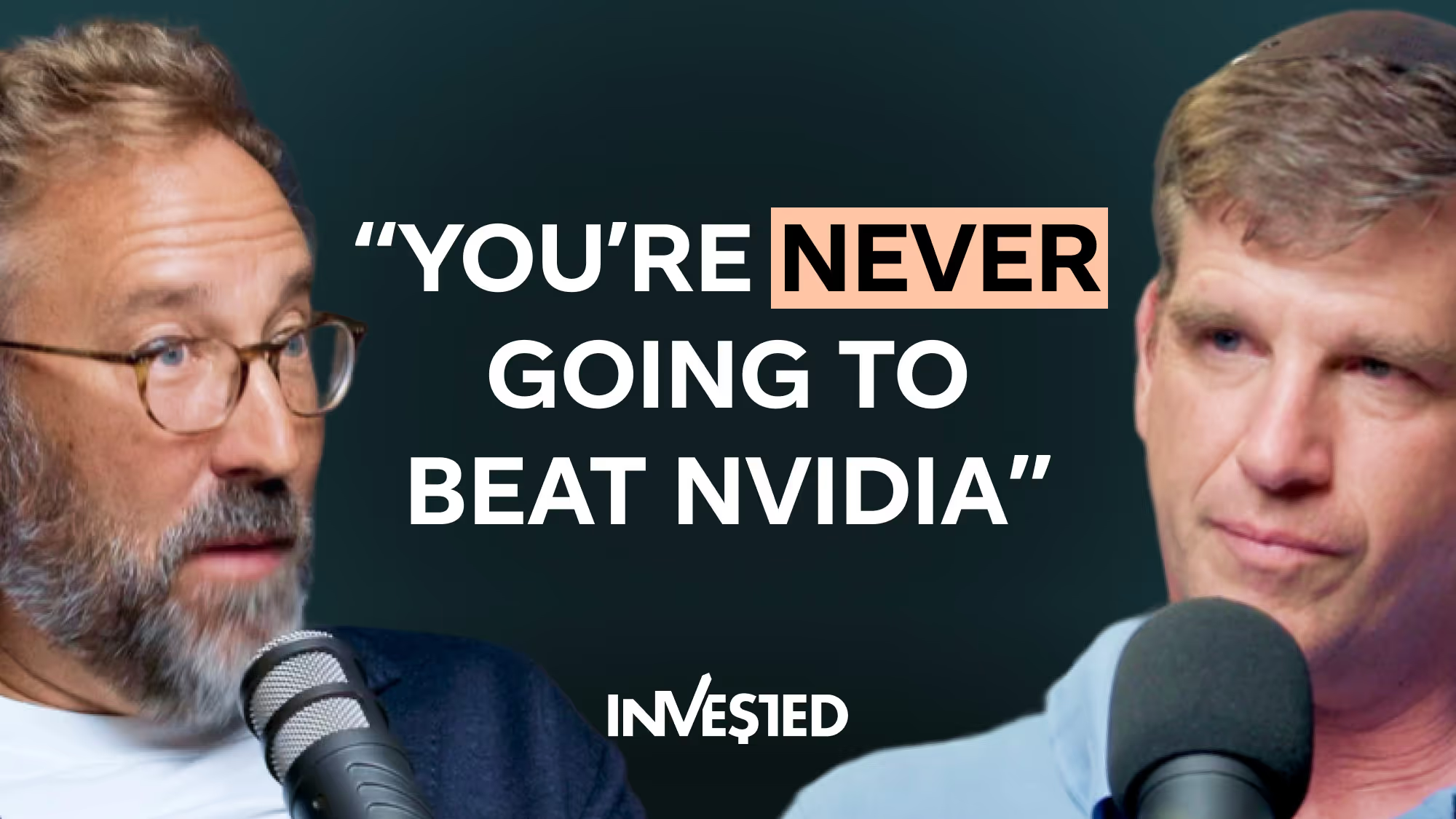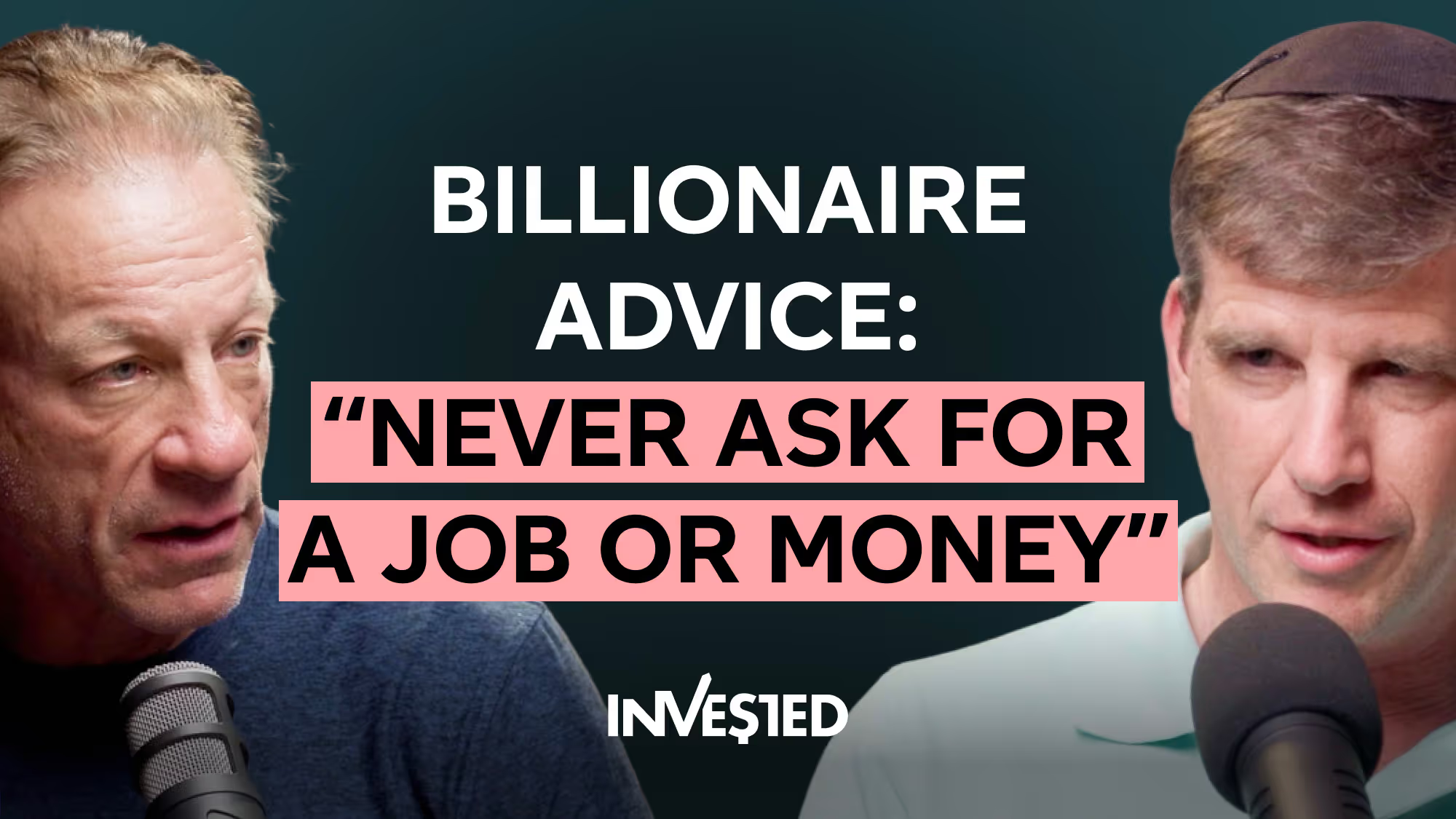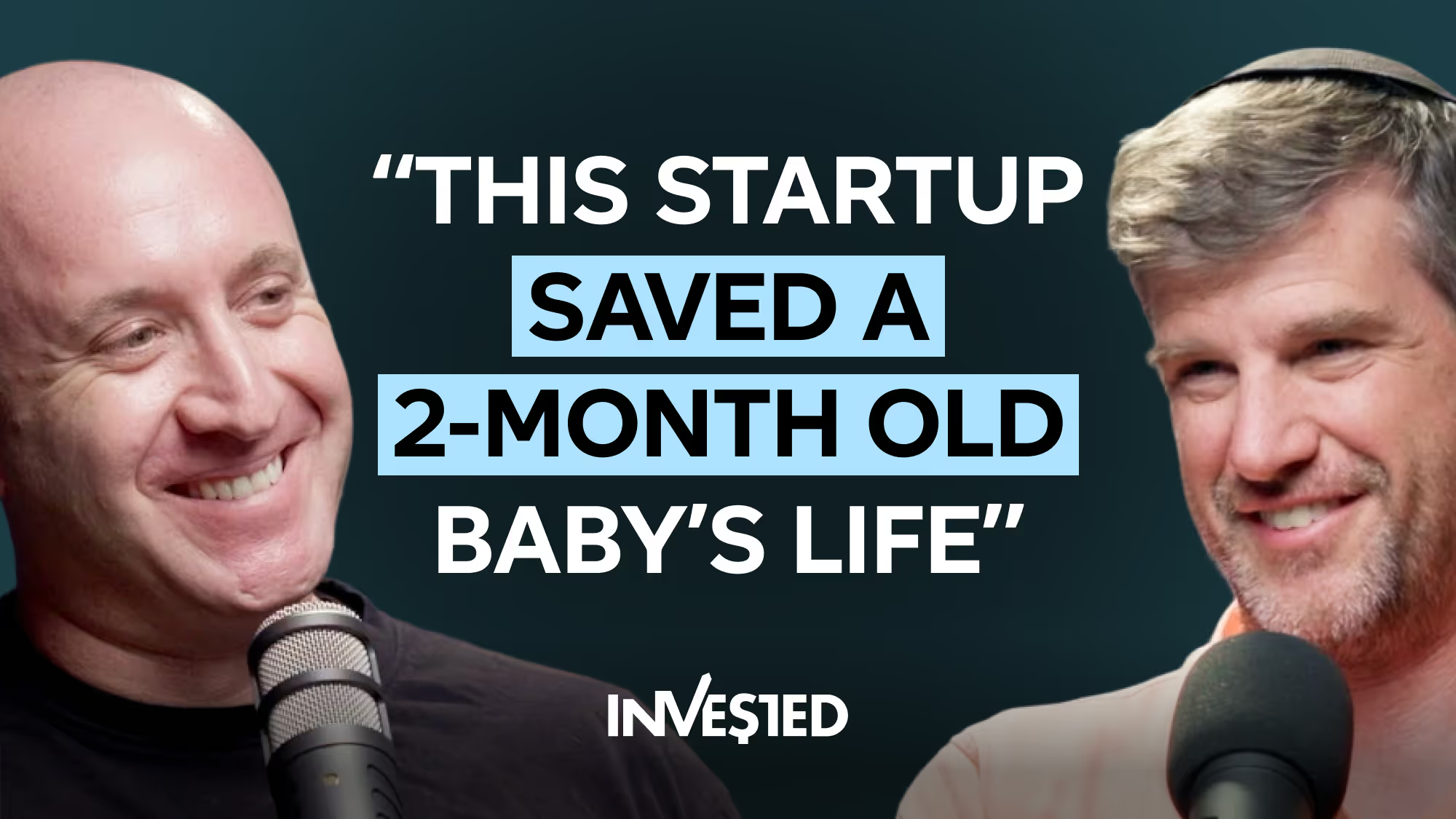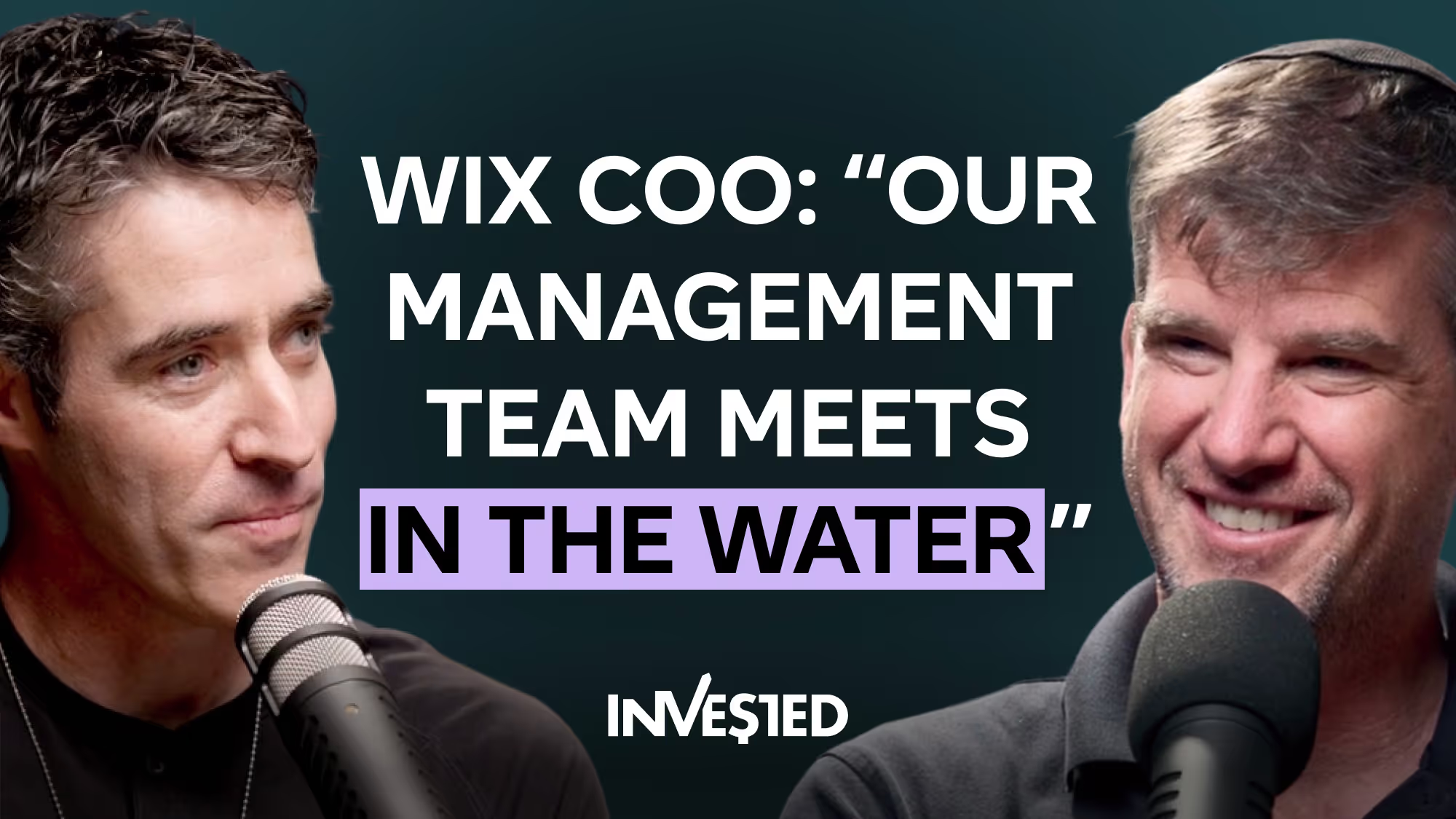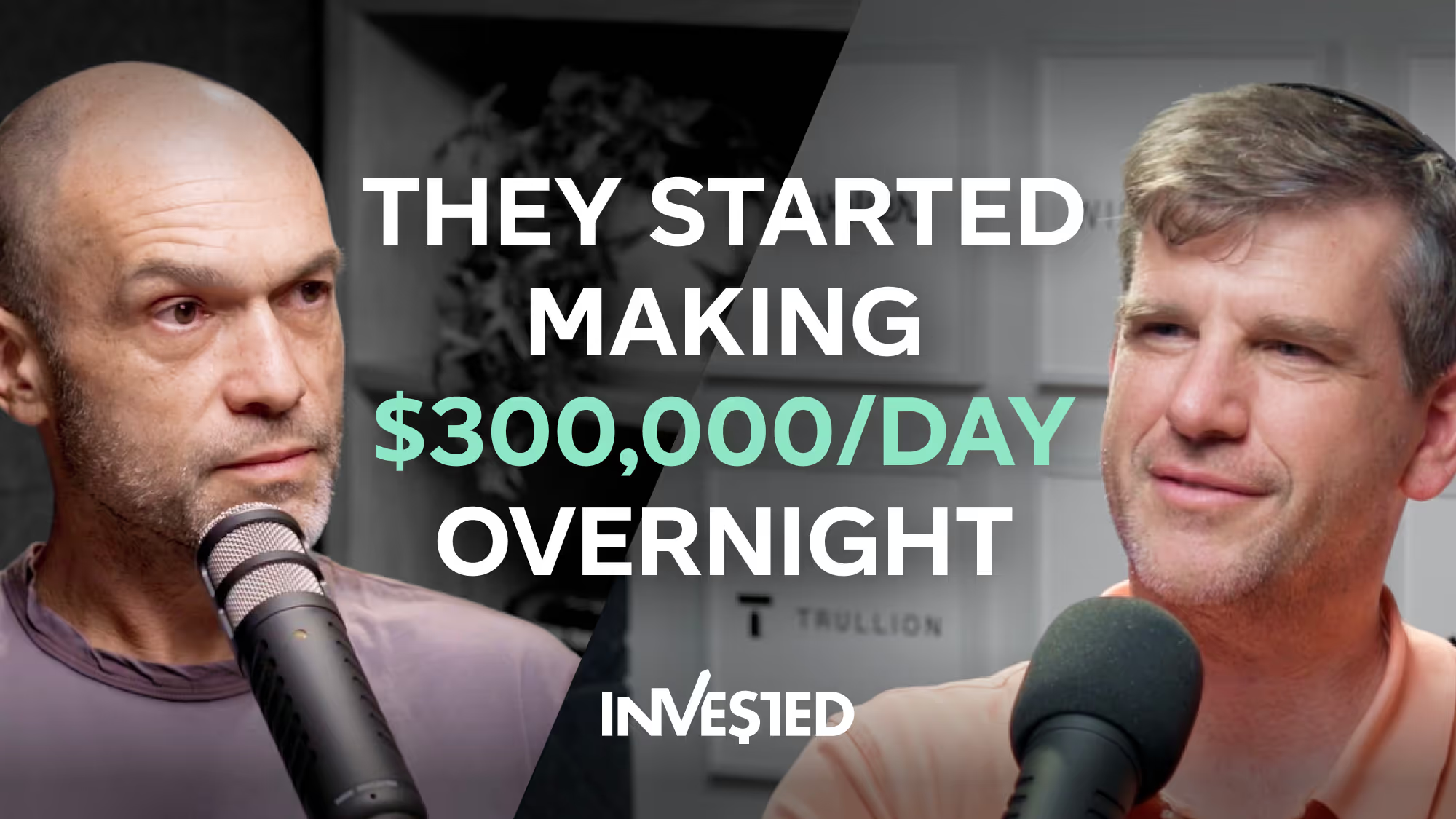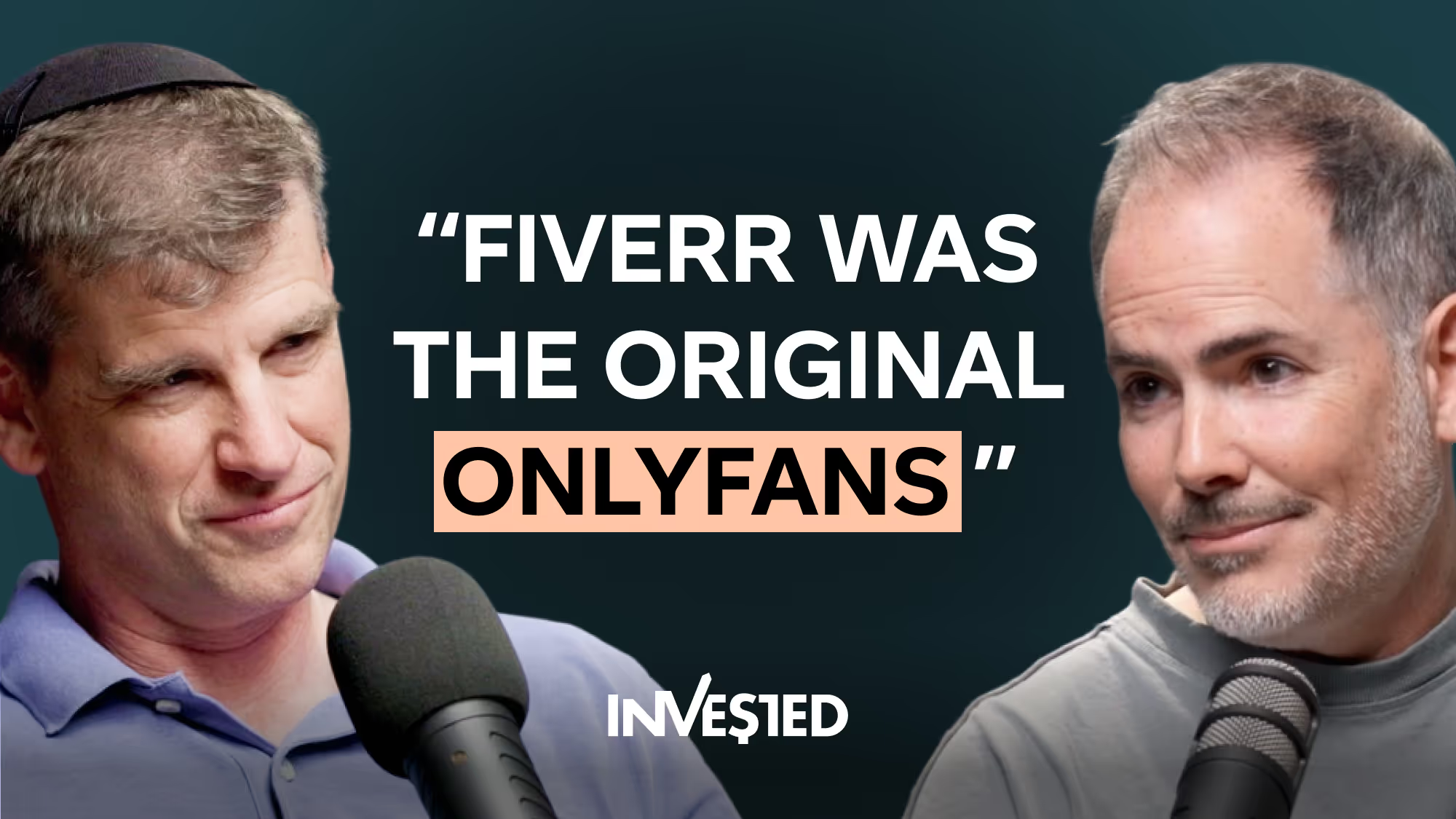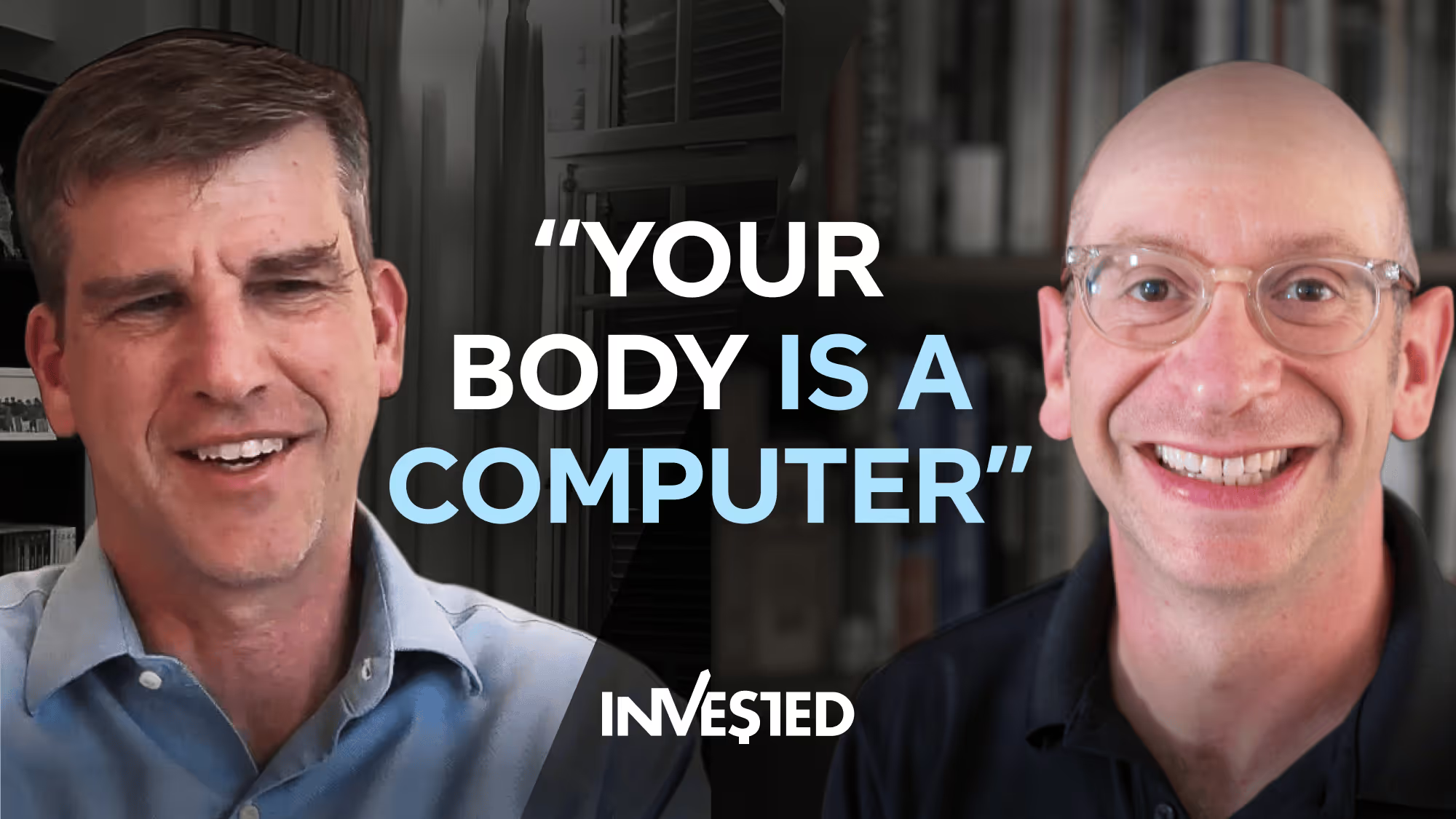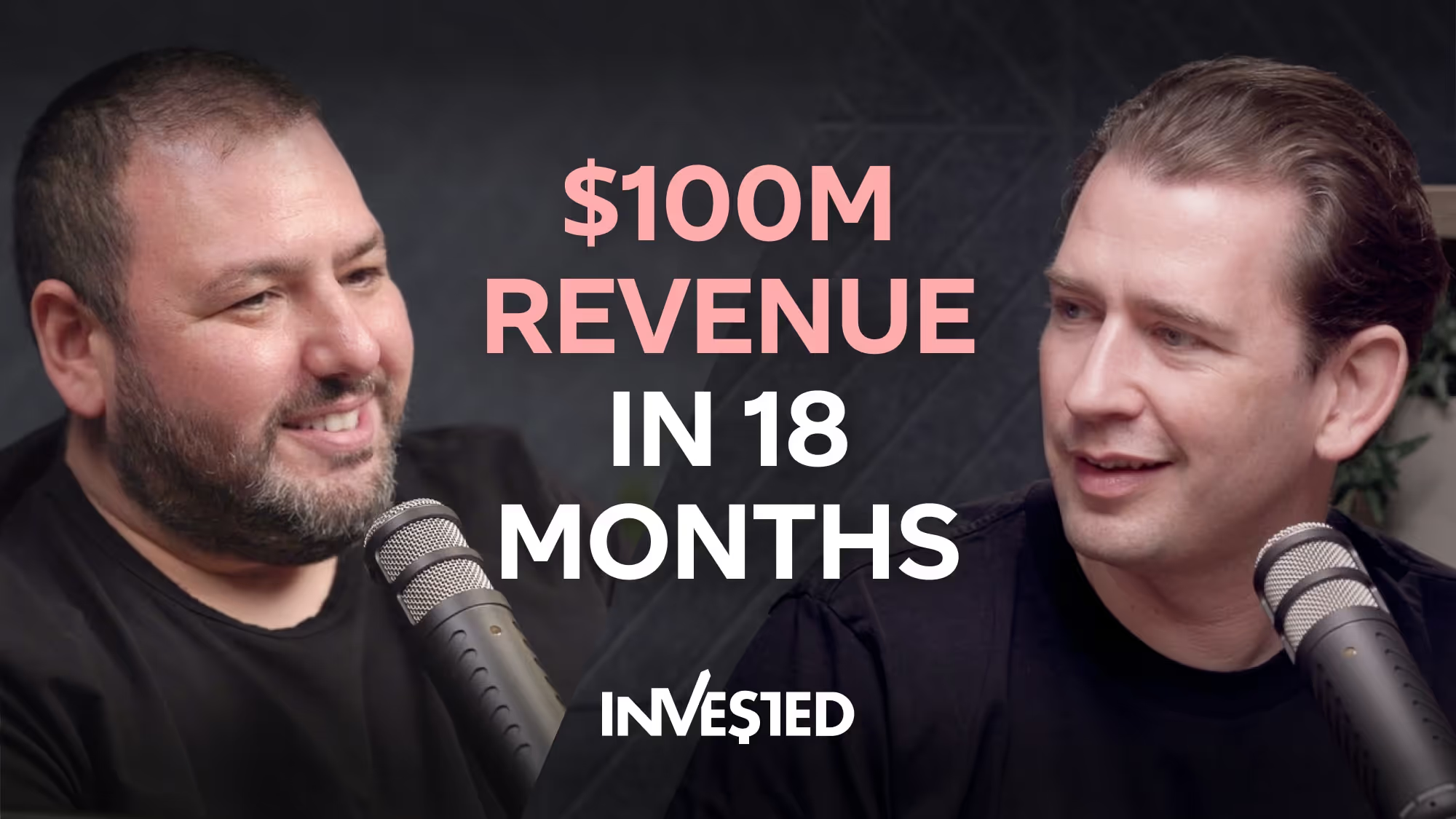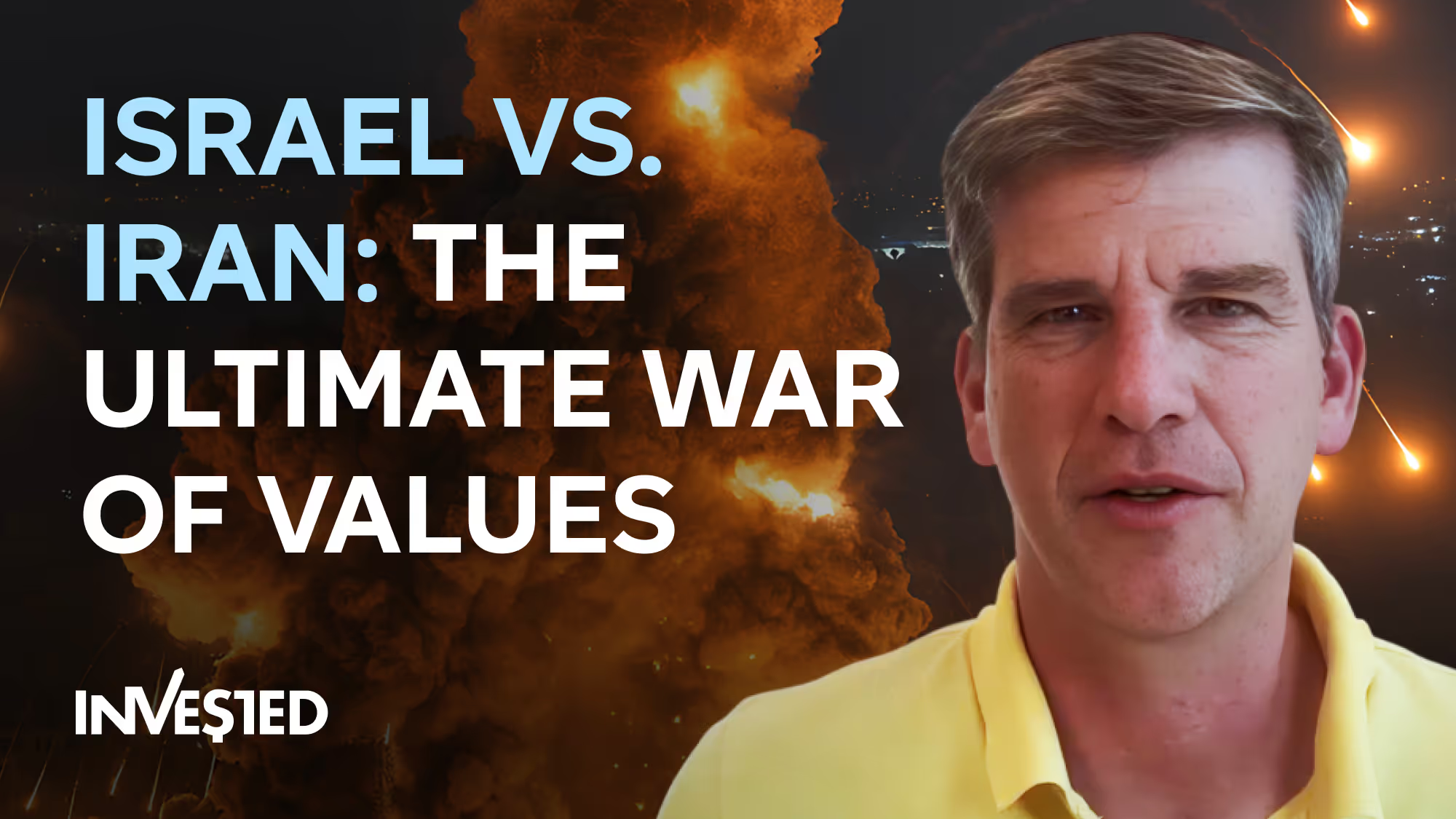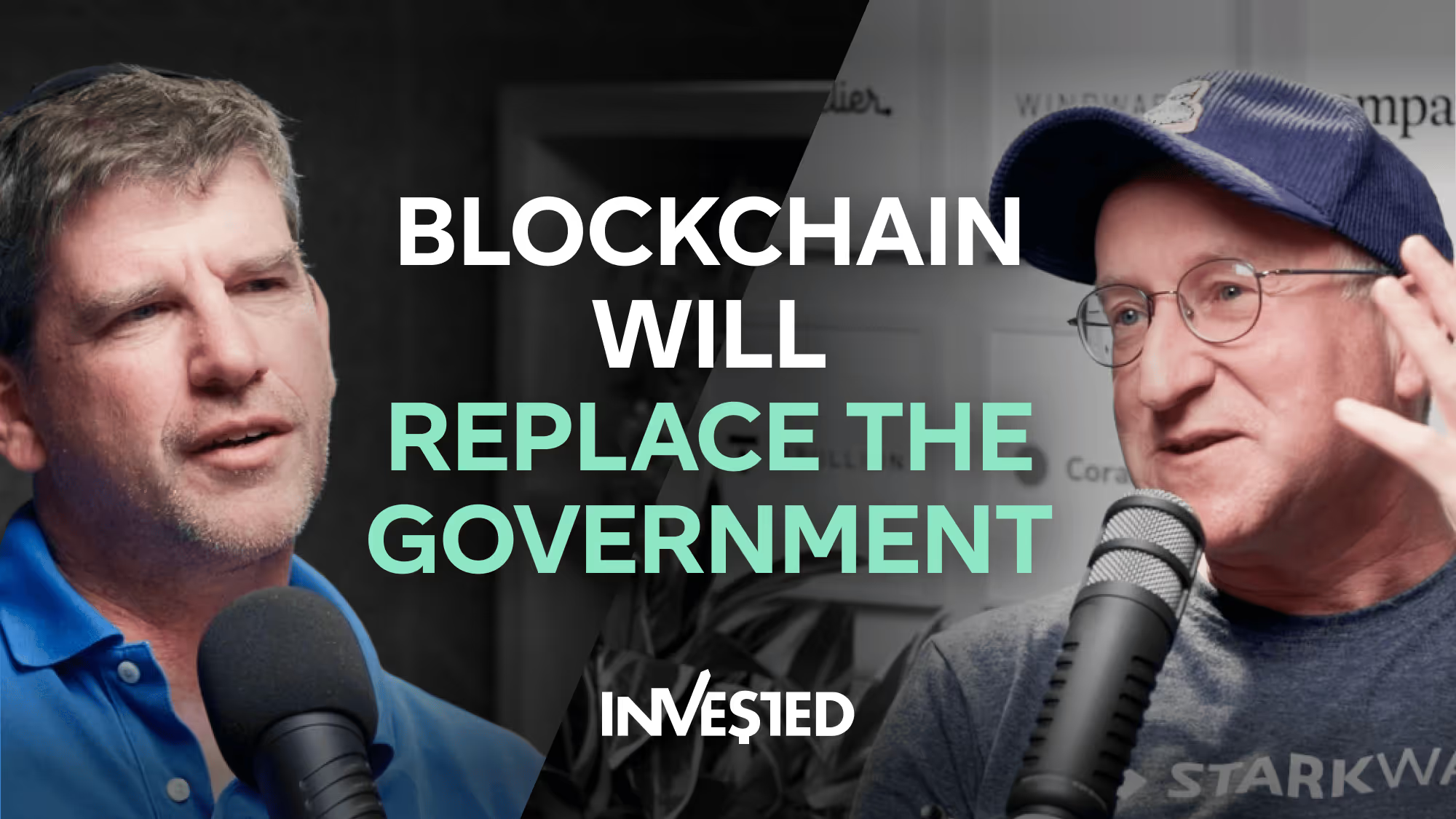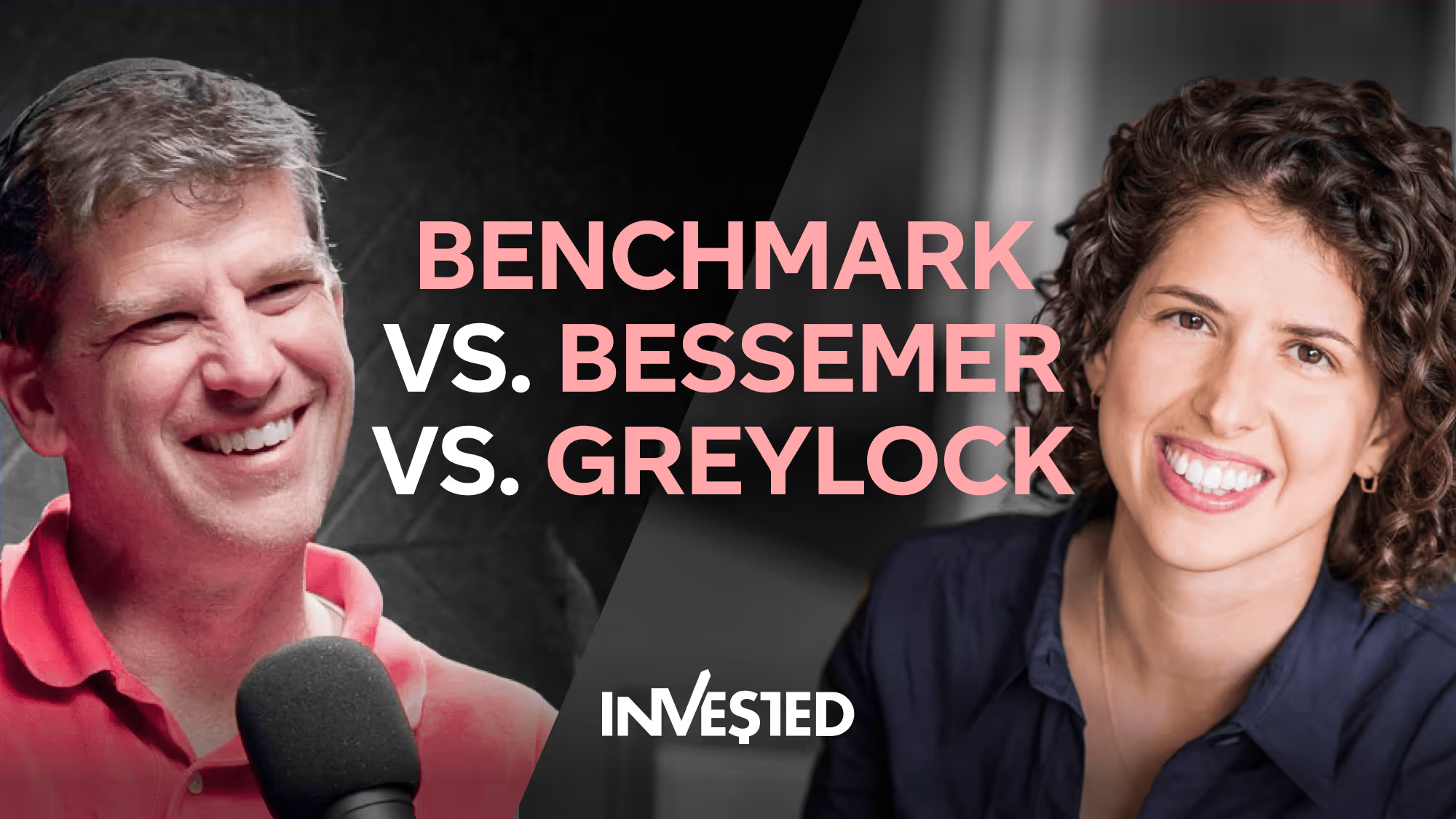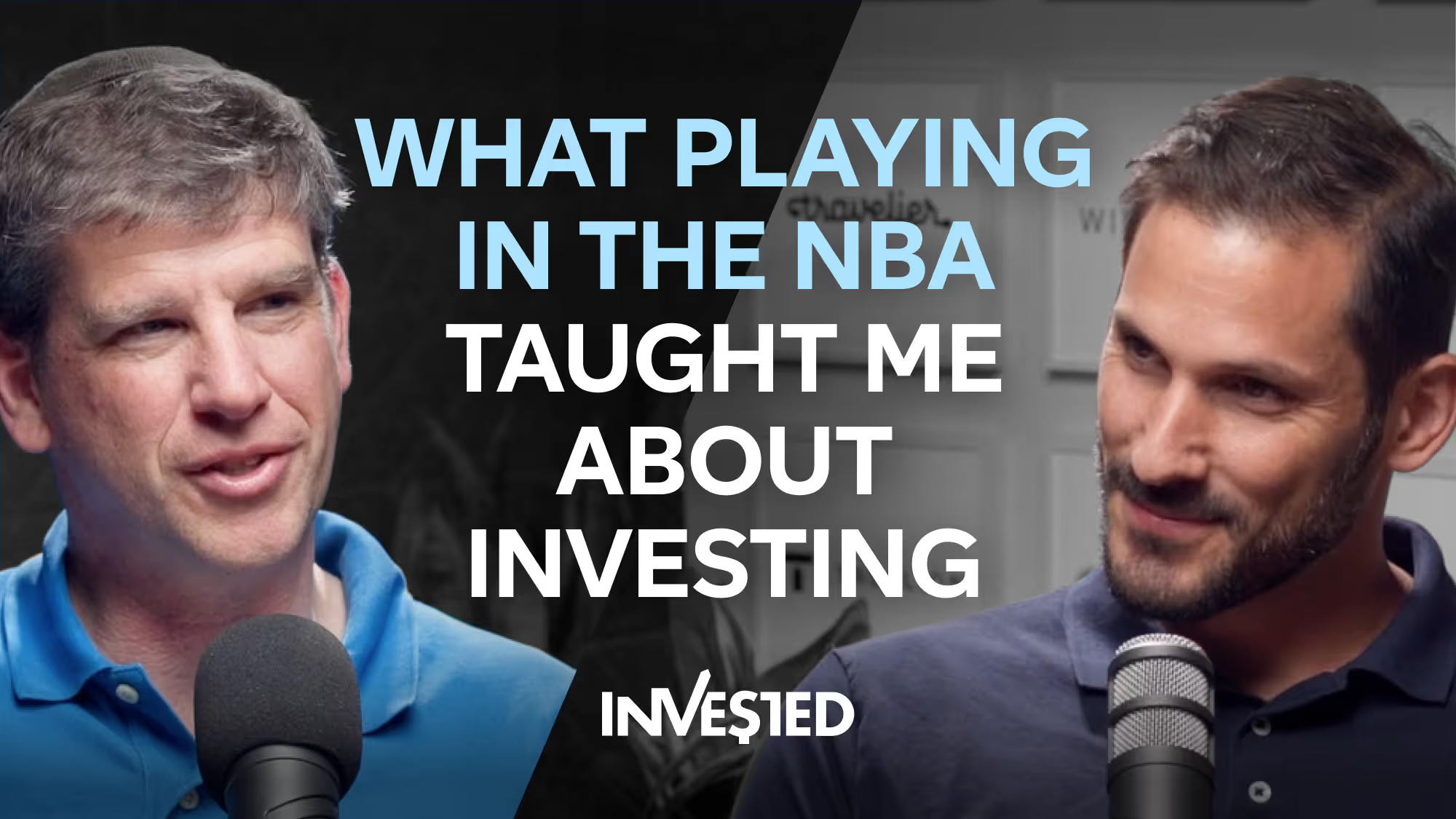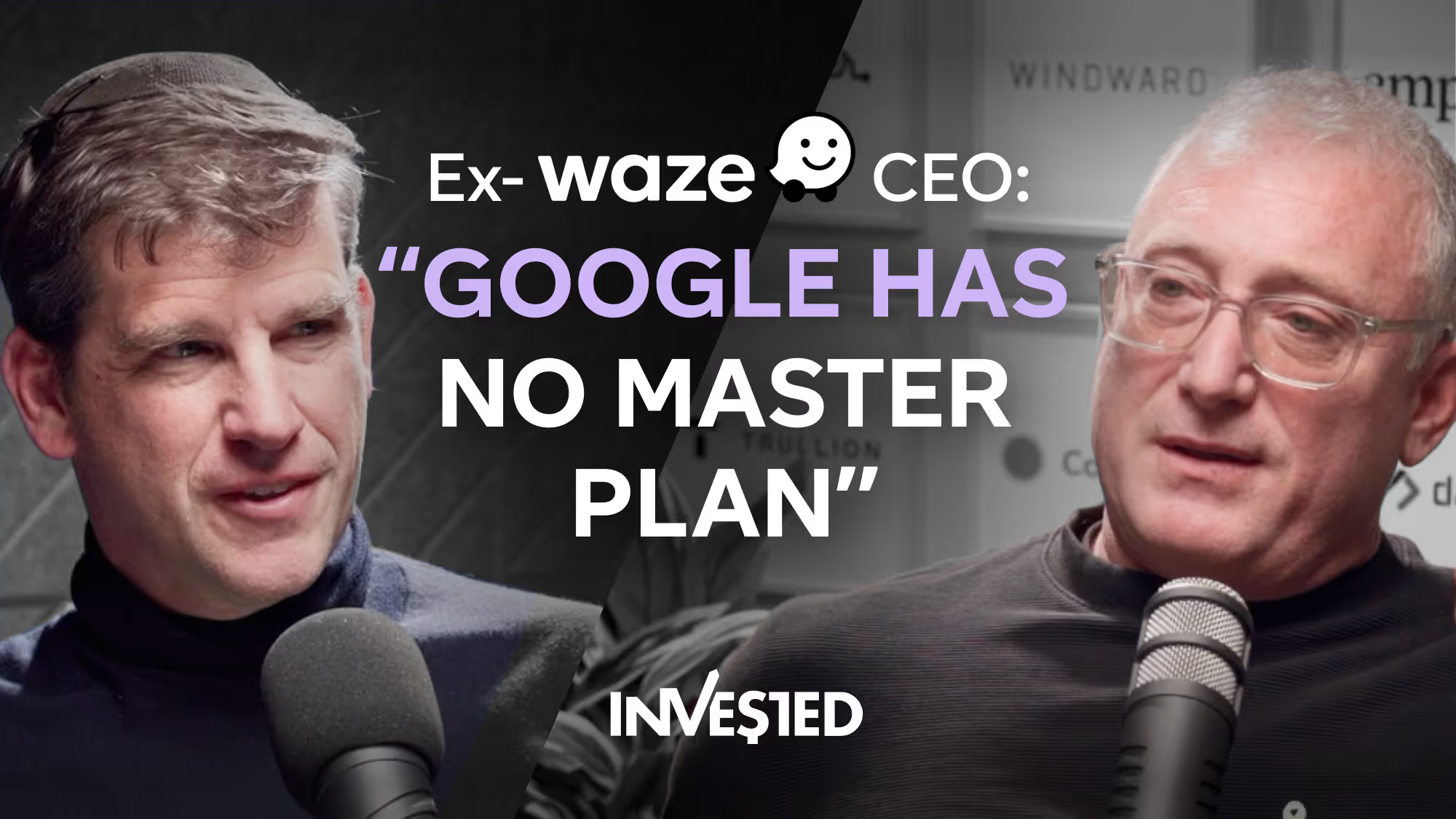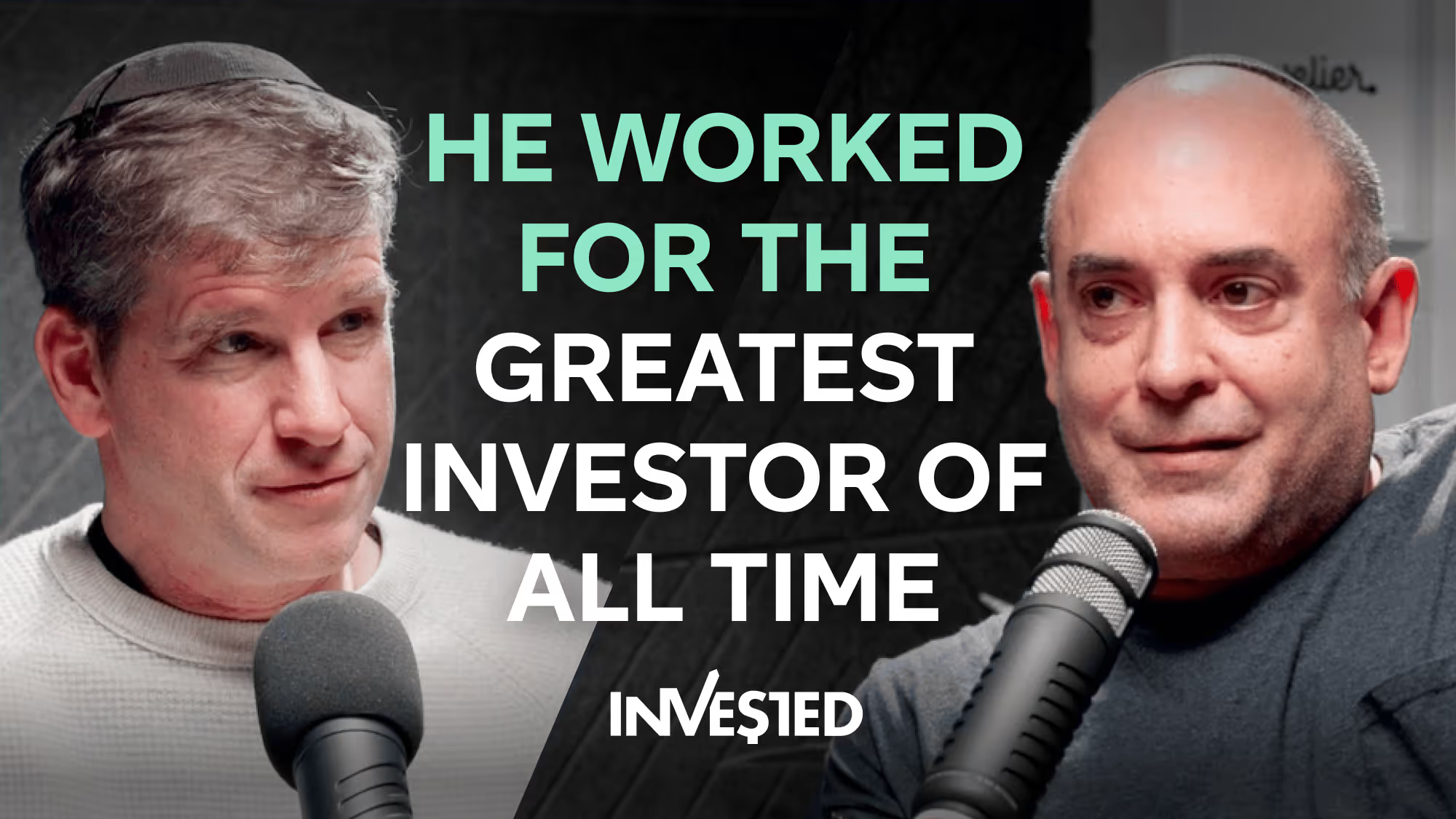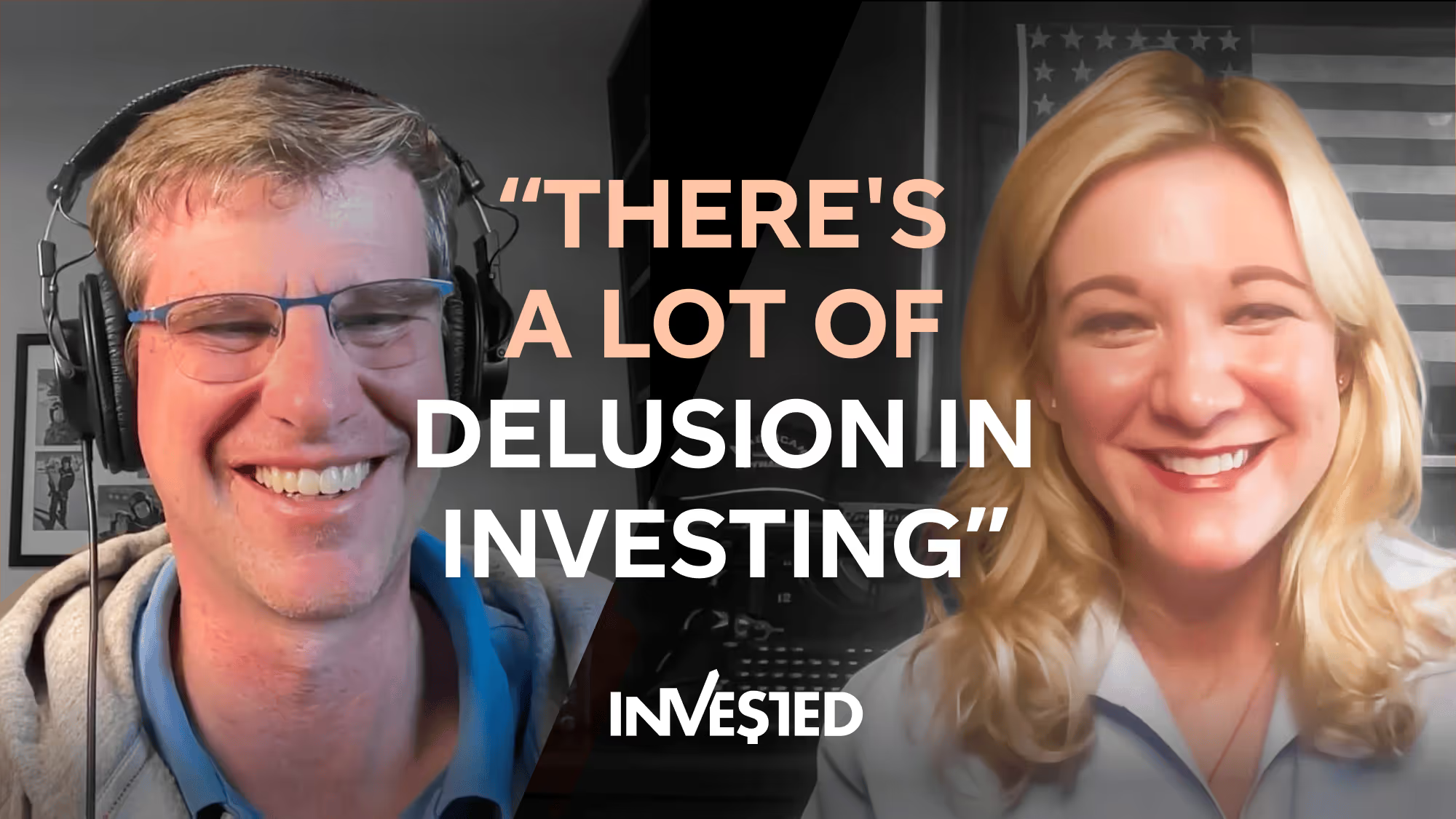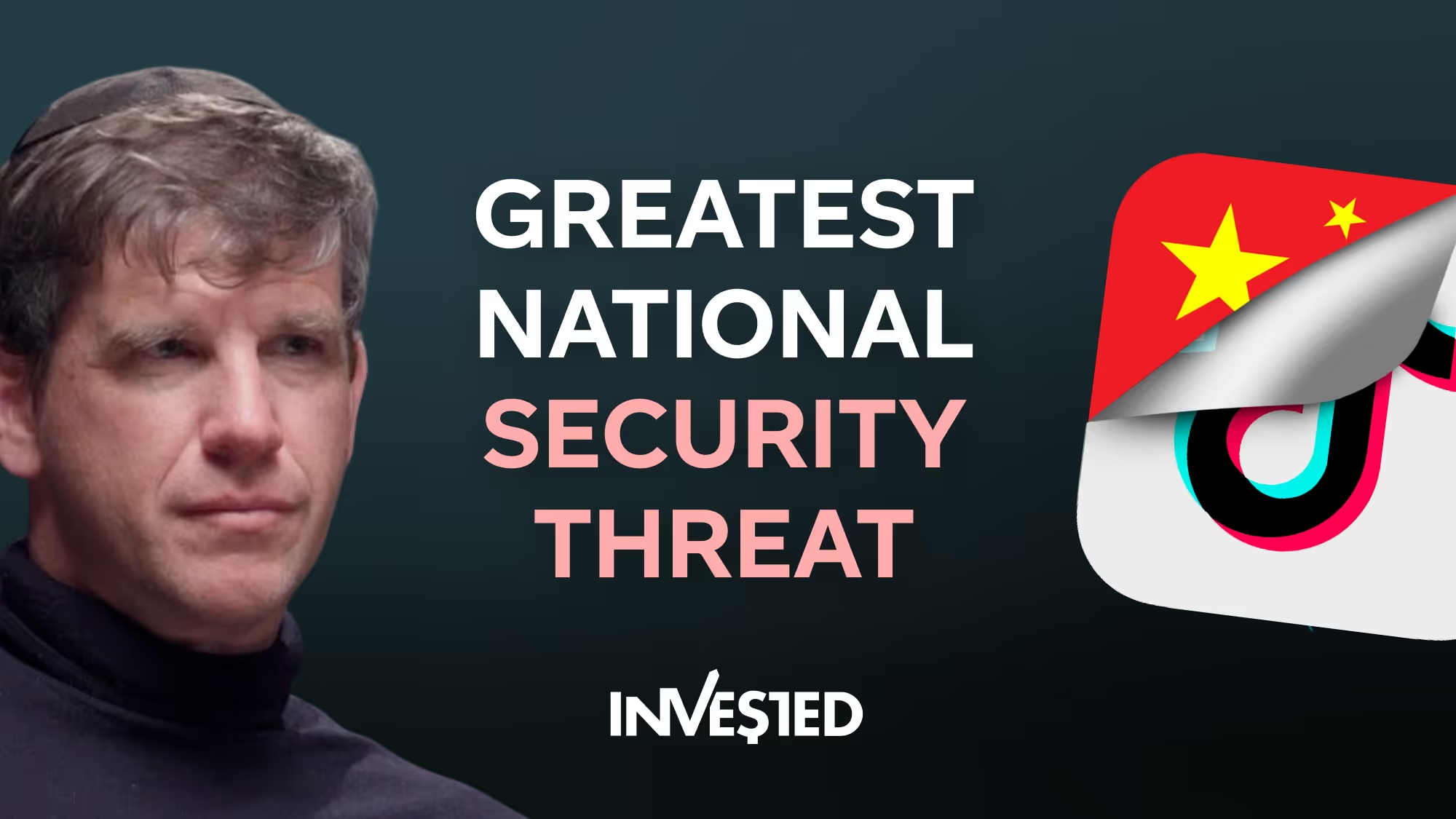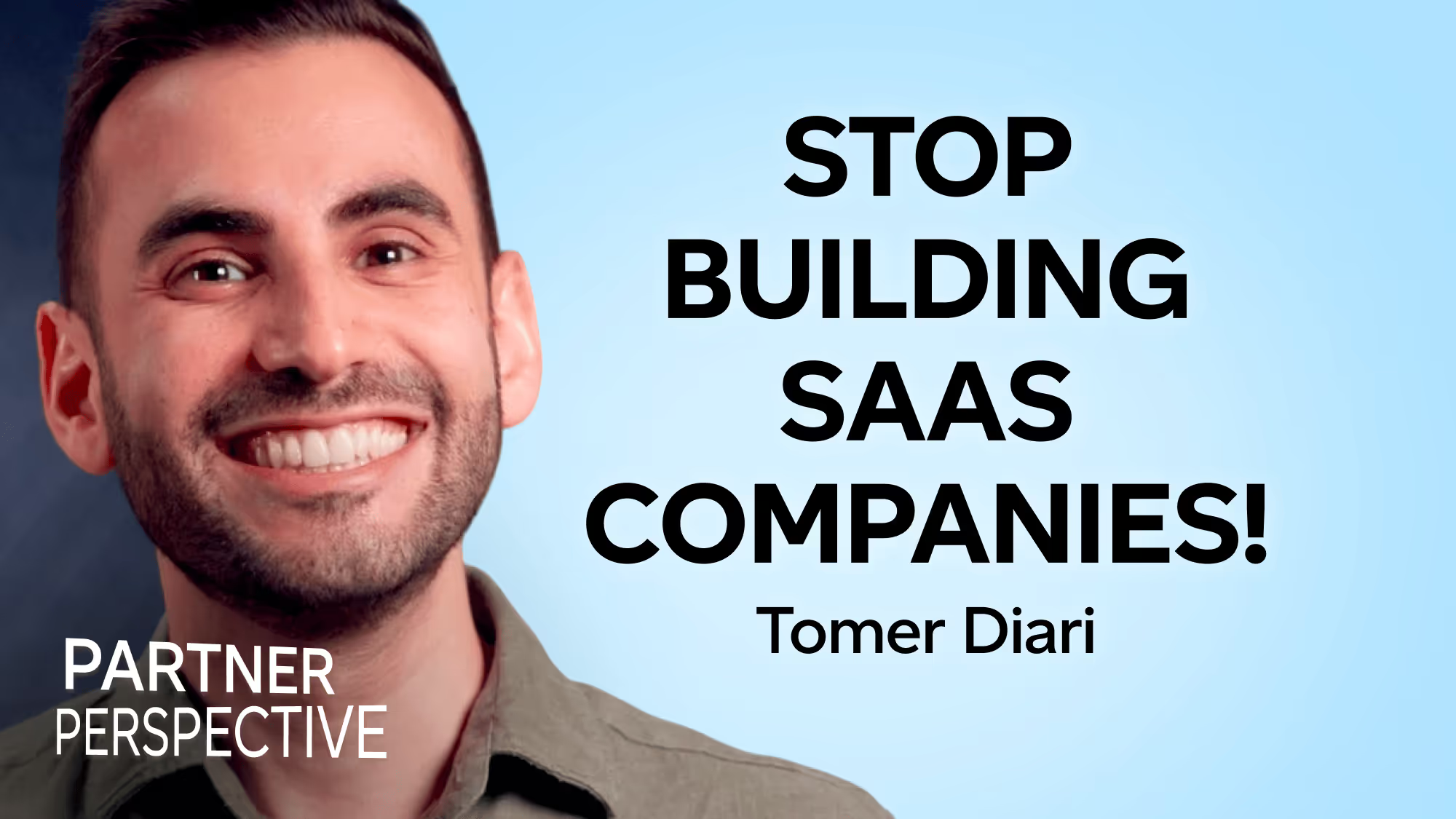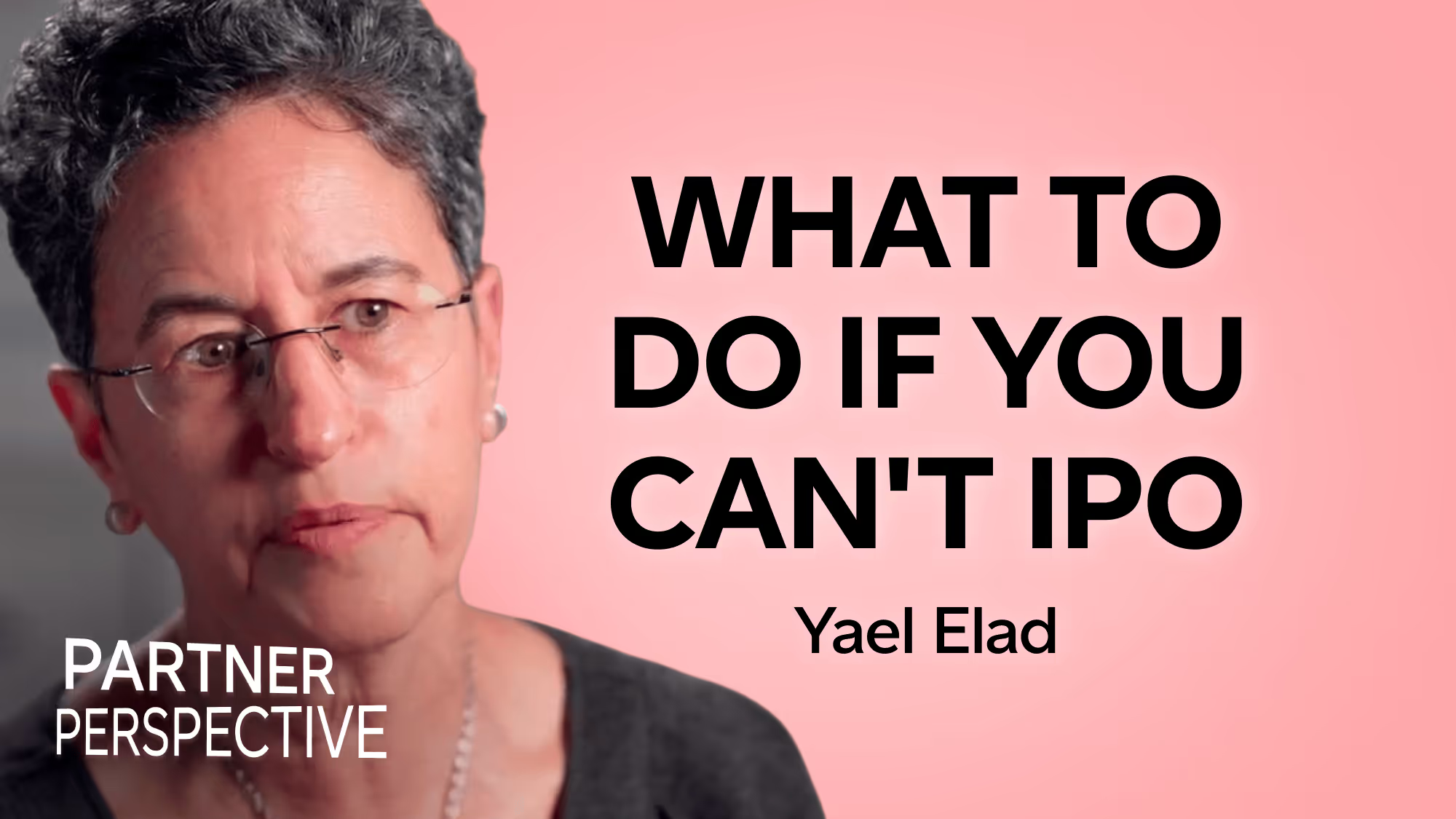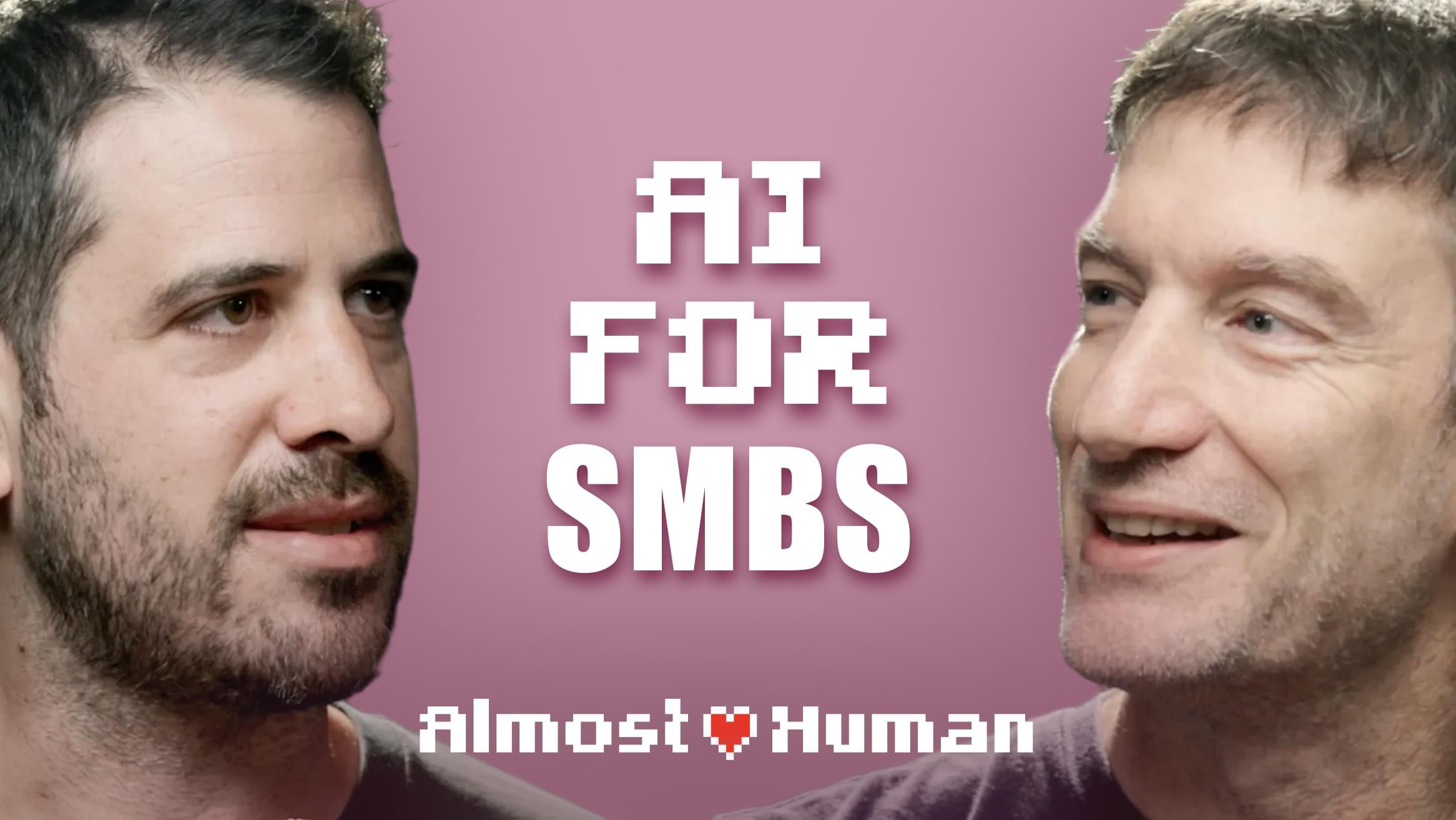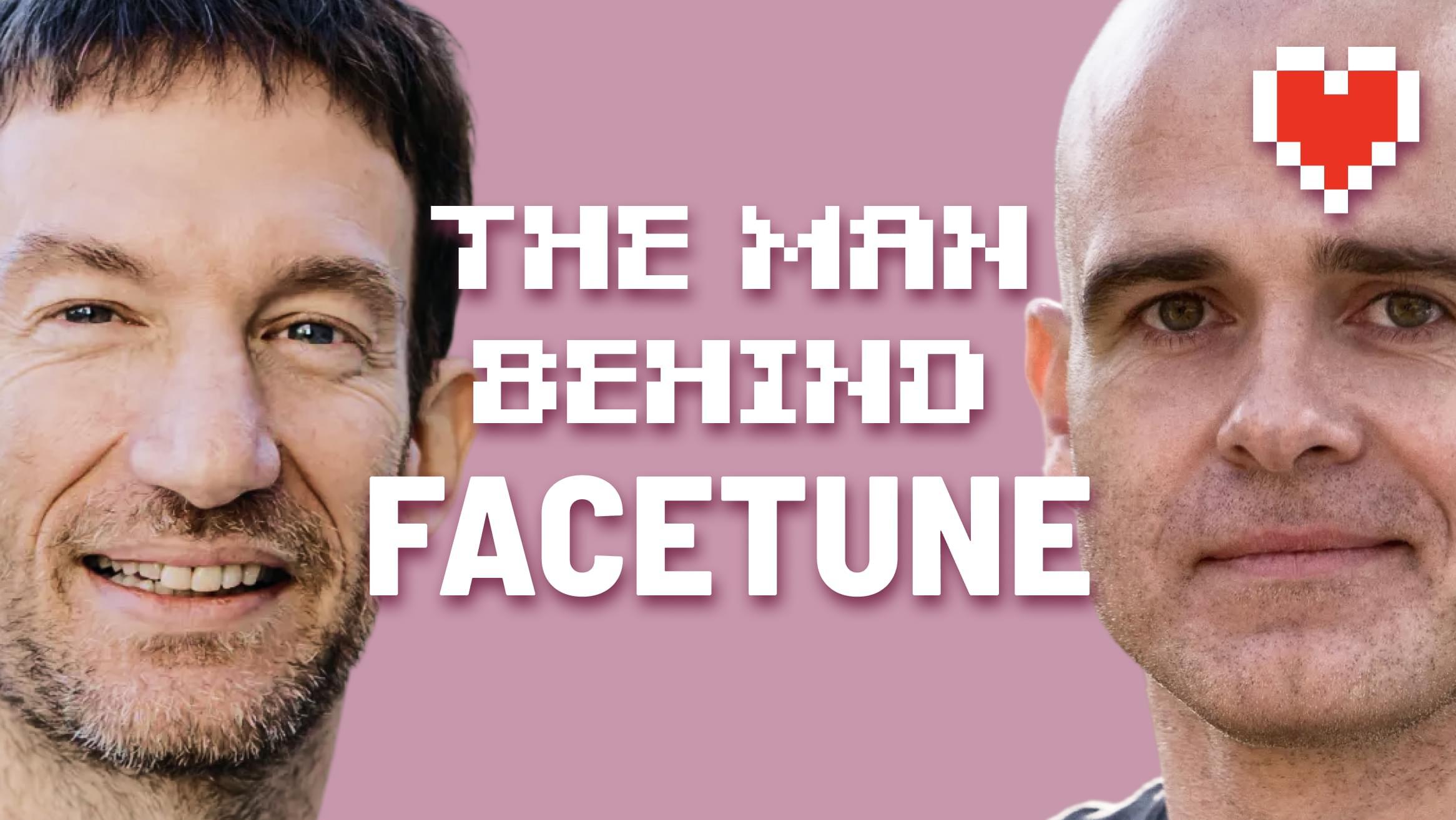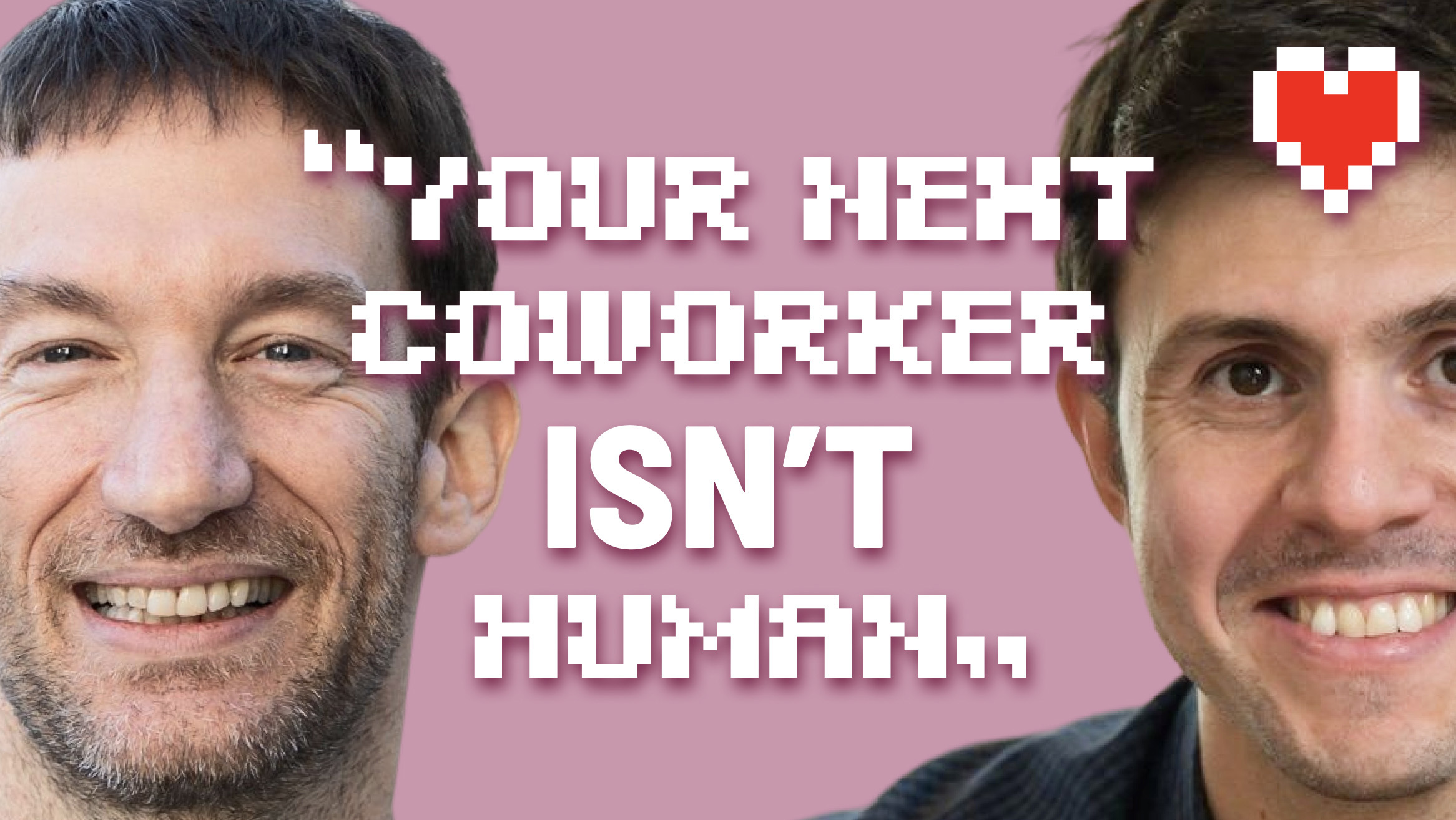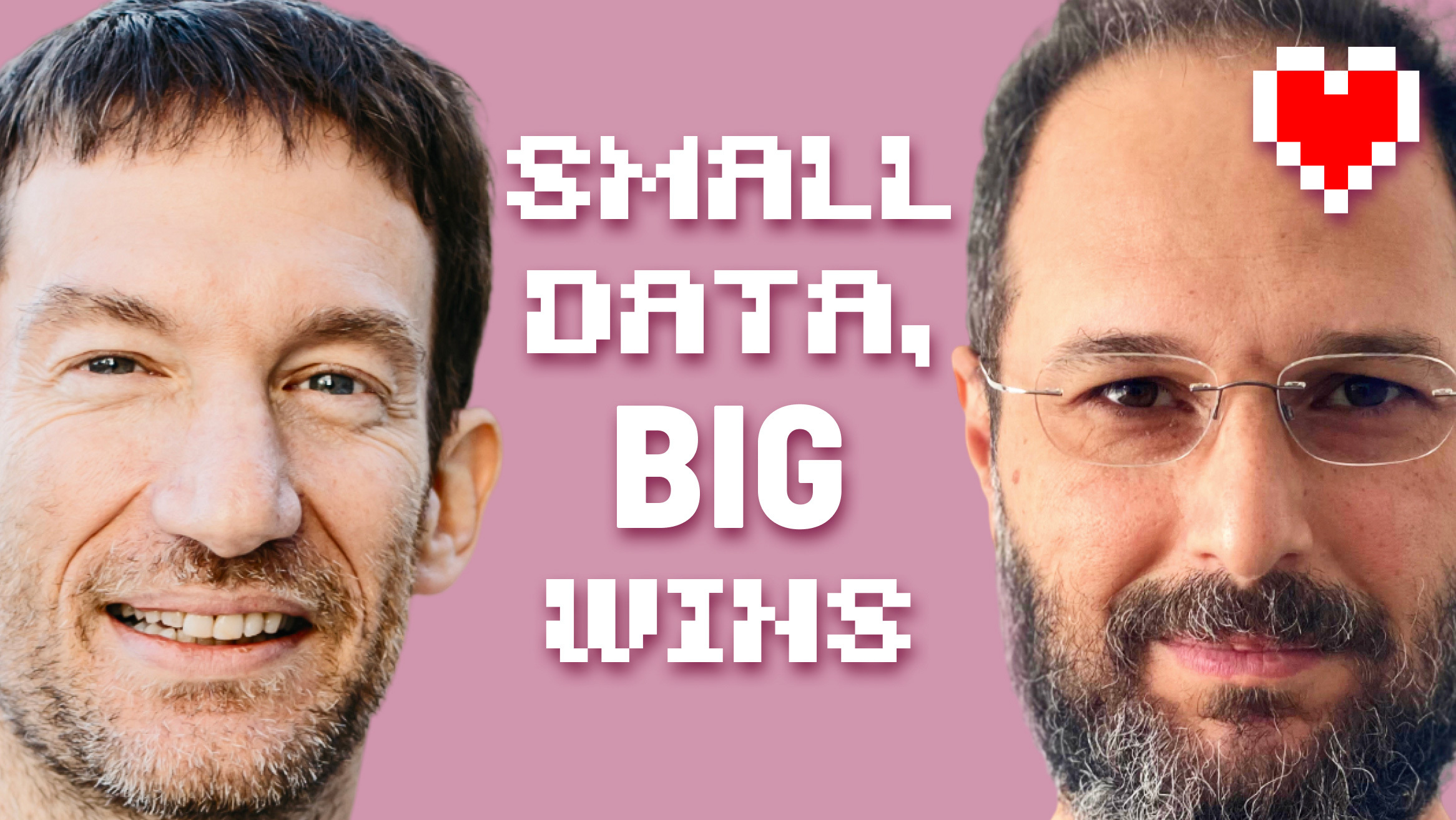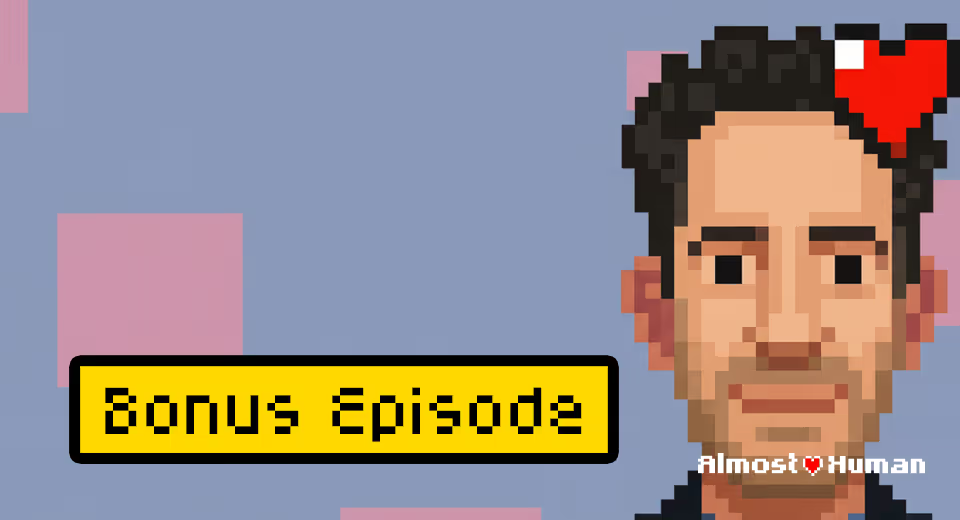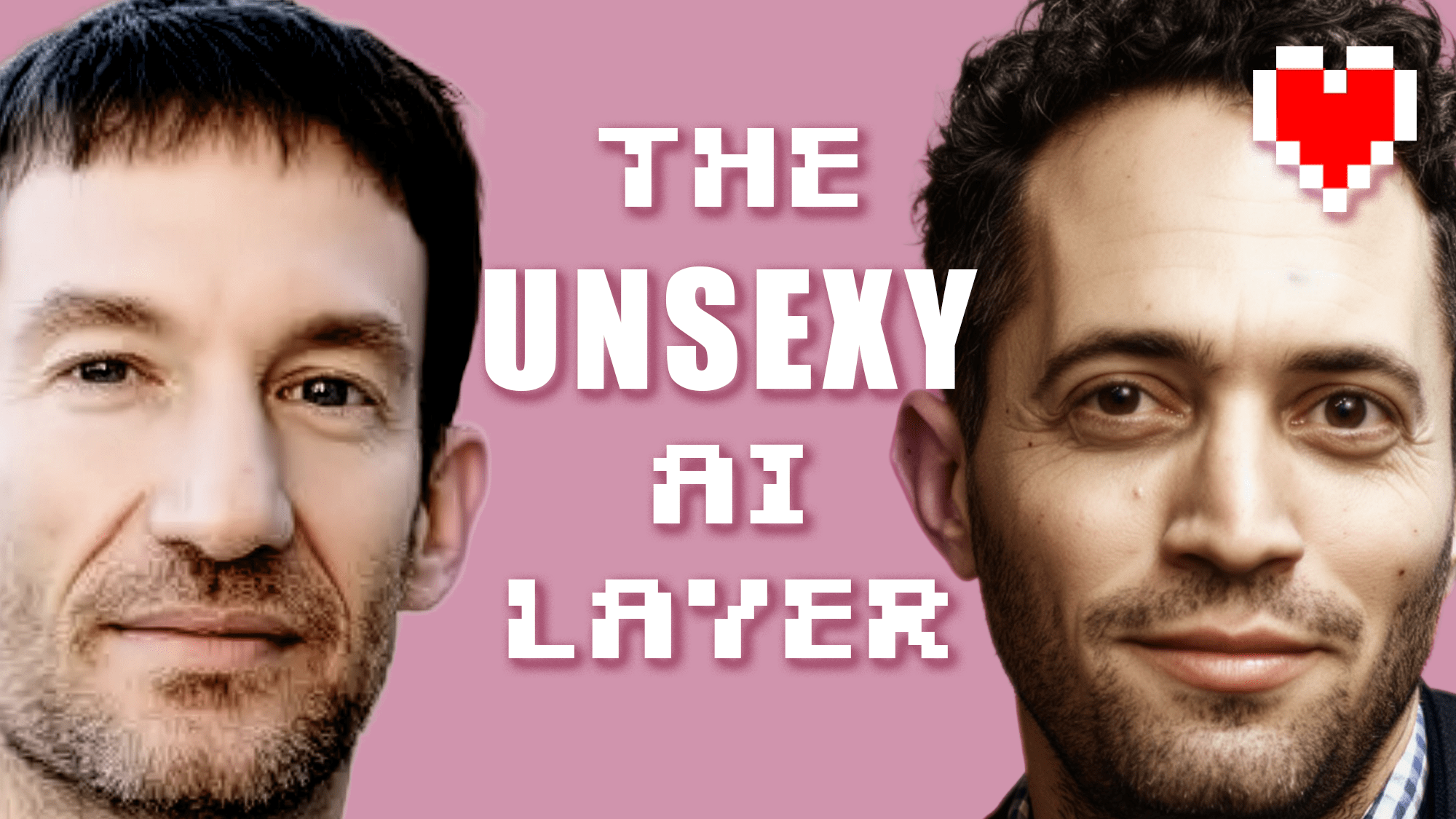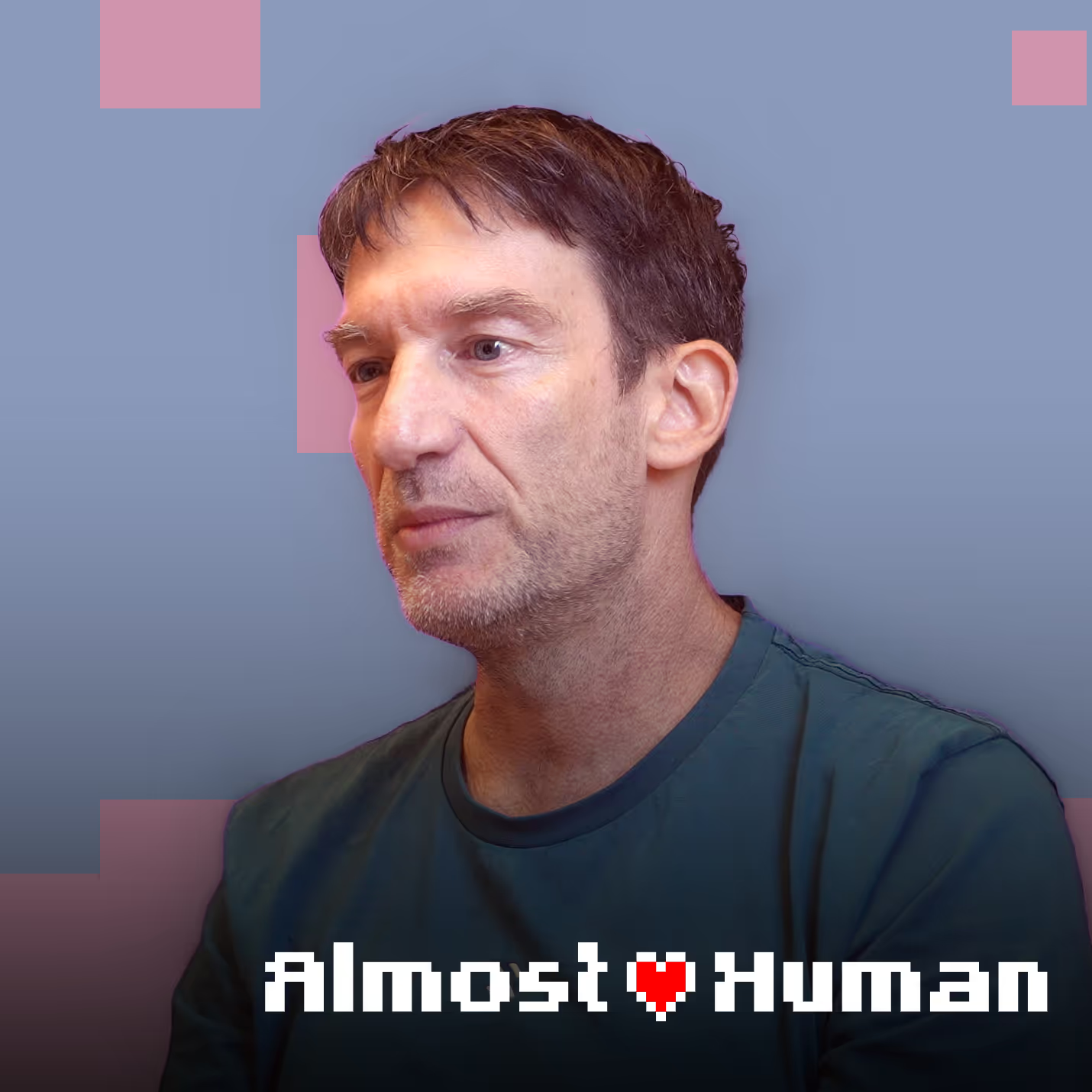Special Episode of Invested with Izhar Shay



How can values create value? On this podcast, Michael Eisenberg talks with business leaders and venture capitalists to explore the values and purpose behind their businesses, the impact technology can have on humanity, and the humanity behind digitization.
Special Episode of Invested with Izhar Shay



How can values create value? On this podcast, Michael Eisenberg talks with business leaders and venture capitalists to explore the values and purpose behind their businesses, the impact technology can have on humanity, and the humanity behind digitization.
Special Episode of Invested with Izhar Shay
Special Episode of Invested with Izhar Shay

Special Episode of Invested with Izhar Shay
Special Episode of Invested with Izhar Shay
- [00:00] Intro
- [01:35] October 7th Attack and Losing His Son, Yaron Oree
- [07:58] Understanding What Happened
- [10:45] About Yaron Oree
- [17:59] The Viral Post and the “Next October” Project
- [25:40] Core Personal Values
- [28:00] Israeli High-Tech Going Forward
- [32:22] Taking a Stand Against Extremism
- [36:35] On Regulating Social Media
- [40:10] Whether to Release October 7th Footage
- [44:30] Investing in Israel in the Future
- [45:15] Creating Startups After the War
On this special episode of Invested, Michael hosts Izhar Shay, former Israeli Minister of Science and Technology, high-tech and social entrepreneur, and venture capitalist.
Izhar is a Venture Partner with Disruptive AI, an early stage deep-tech VC focused on AI investments. Shay is actively involved with a number of innovative companies as an advisor, board member and mentor for CEOs and entrepreneurs. He also volunteers as the Chairman of Darkenu, an NGO focused on promoting liberal democratic values for the State of Israel, which also operates DemocratTV.
You can find Izhar Shay on LinkedIn.
Please rate this episode 5 stars wherever you stream your podcasts!
Izhar Shay
Each of these people had a name. We are going to have a startup for each of those names.
Michael
Today we're running another special episode of Invested, in light of the atrocities that occurred in Israel on October 7th, and the incredible response of Israeli society since. I'm here with Izhar Shay, who is an entrepreneur. He was a minister in Israel's government, the Minister of Science and Technology and Innovation. He is a venture capitalist like I am.
Izhar, thank you for joining us on Invested in light of what's going on right now in the country, specifically your family. And before we start, I just want to extend our condolences and tell you how sorry we are for your loss of your son, Yaron, a real hero who died not only defending the country but saving countless lives, which we'll get into soon. So first, could you introduce yourself? And then I'd love to hear more about Yaron.
Izhar Shay
Thank you, Michael, for having me here. I think that what you are doing is important in terms of delivering not only the news and the updates, but also the insights as to what is going on in Israel and how the innovation ecosystem is coping with this kind of significant challenge. And it is coping. It is important to say that. So as you said, I'm a venture capitalist. I was the Minister of Science and Technology for the Israeli government.
And in the context of our discussion today, I was, for 21 years, the very proud father of Yaron Oree Shay, our youngest son. Yaron has three siblings - my daughter, who is 33-years-old, Shir; my son, Lior, at 30-years-old, and Ophir, who is 26. Yaron was our youngest. He was a soldier within a special unit of the Nahal Brigade.
They were stationed at the border for a few weeks before October 7th. Their mission at the border between the Gaza Strip and Israel was actually to keep the peace between the two sides of the fence, to let people go about their agricultural business and other businesses on both sides of the fence. On October 7th, they were there from the first launch of rockets and missiles against Israel.
Their unit responded as they should have, because this was their mission - when peace turns into war, when the ceasefire is broken by the other side, what the IDF is supposed to do is to respond and to protect the civilians. This is what Yaron's unit did on the southern side of the Gaza Strip border. They were stationed in an area called Kerem Shalom.
Ironically enough, Kerem Shalom means ‘the peace vineyards’. This is the name of the kibbutz and also the name of the army base, which is adjacent to that kibbutz. This is what Yaron's unit was assigned to in terms of their responsibility. And they responded immediately. They were attacked in that area by hundreds of highly trained, very well equipped Hamas terrorists, whose mission was to move into the kibbutz and the torture and murder of innocent civilians, babies, young women, families, whomever they would be able to get hold of, as they did in many other places in that region. But in this case, the unit stood against them and was able to maintain both lines in the army base and in the kibbutz. The end result is significant tolls for the unit itself.
The commander of the unit was killed in action. His deputy commander was also killed, a number of other officers and soldiers, including our son, Yaron, when they were facing, basically, a higher number of terrorists, but they maintained the line. No one was affected on the side of the civilians in the kibbutz, and none of the military women who were in charge of the radars and the various electronic equipment, the devices that are in the base, none of them was hurt, which is quite an accomplishment, as opposed to the sad results in other areas.
Michael
The soldiers in your son’s brigade, in the Nahal Brigade there, were able to defend against these rapists and terrorists coming in. In other areas where they broke through, they raped many women, including women soldiers, some of which have been taken into captivity.
There's now 240 kidnapped Israelis, Americans and Thais who have been taken into the Gaza Strip by the Hamas Jihadi terrorists. And the fact that your son and his brigade was able to stop the infiltration there, despite the horrific loss of life in your son's brigade, has saved countless more women, children, and others from a fate that befell others. That bravery is remarkable and it's just important to point out both the bravery and the tragedy that was averted because of it.
Izhar Shay
Thank you for noting that out. The mission those savages had was to rape, and behead, and kill young babies and torture families in front of their relatives just to make sure that everybody suffers and then get rid of them by killing them in all kinds of savage ways. So yeah, this was a mission. The mission was not accomplished in that region. The toll was significant in terms of the military toll, but this is what the IDF is supposed to do. The IDF stands for Israel Defense Forces. And this is exactly what they did. They defended the civilians, they defended the State of Israel. And on that side of the border, the border was maintained.
Yaron himself was part of a team of three, that was actually the commanding post of the unit. He was just sent to the commander of the unit at that time and another soldier, and the three of them stood in heroic ways against dozens and dozens of terrorists - again, very well equipped and highly trained. They responded. They were able to maintain the line. Actually, there's an interesting communications recording of the Hamas terrorists, where the commander of the area of Hamas kind of shouts at his people -why do they not enter the kibbutz? And they tell him that there is a jeep that they cannot get rid of; there is some kind of response that they are unable to overcome. And this is exactly the jeep, or the unit that Yaron was part of. Eventually after fighting hard against dozens and dozens of terrorists, the three people were wounded. One of them was severely wounded. This is the driver.
The other one was severely wounded, who is Yaron. And the third one was wounded, but still was able to maintain consciousness, and this is the commander of the unit. And by some very heroic efforts of another officer, they were able to retrieve them back to an area where they could be treated first and then lifted by a helicopter back to a hospital. And this is where Yaron was pronounced dead. And the other soldier, by the way, is recovering now, doing relatively well, and we are very happy for him. He will survive, and he will be able to continue on with his life.
Michael
Now, when I came to visit you for a condolence call in the Shiva, you were starting to piece together what happened on that morning. One of the things that I heard when I was there was despite the massive numbers of Hamas terrorists, it seems that your son and his crew took out a significant number of them. How much detail do you have now of what happened on that morning?
Izhar Shay
You know, Michael, it's a very good question, because we are gathering details on the go. Because most of the soldiers who survived that day and can still be considered as in condition to fight are in the Gaza Strip now, fighting against terrorists. So what we have is what we were able to gather from wounded soldiers. Each of them has their own perspective, or their own very narrow angle as to what happened in their part of the section, which is totally fine, because we are piecing together those pieces.
And we spoke, actually, with Yaron’s commander, direct commander, who was hospitalized for three weeks. And by the way, he's now back in Gaza. He's a real hero. This guy really saved - you know, with his own soul and body - probably hundreds of people just by commanding that unit, by standing still, killing, himself, as many people as he could, as many terrorists as he could, while responding personally to his personal situation, but also by continuing to command the unit itself.
Interestingly enough, sometime at the afternoon, the unit was able to kind of tranquilize the situation a little bit, so that they could bring in a chopper of a special Air Force unit called 669. This helicopter is assigned to take wounded people, wounded soldiers to the hospital. This officer
took the wounded people with him, took some soldiers in order to bring them on to the helicopter.
And then on the helicopter, you have a doctor who kind of does the arbitrage and decides who goes on and who goes off. And then he looked at this officer and said, “You must go on this helicopter. You're wounded in a dangerous way.” And the officer looks at him and says, “There's no way I'm going up the helicopter.” He turned back and stayed on the ground while the helicopter had to immediately take off, because of the shooting around them.
So this guy was indeed the commander of Yaron. He was also a very good friend of Yaron. He took his death in very personal ways. But he's a real hero. And after three weeks in hospital and treatments and so on, he's back in Gaza. He's, from Friday, with his soldiers fighting arm to arm, shoulder to shoulder with them.
Michael
Wow, that's incredible, and inspiring. I'd like you to just take a couple minutes and tell us about Yaron.
Izhar Shay
Sure. So, Yaron was our youngest. He was 21 years at his falling in Kerem Shalom. Interesting to note, Yaron was an American citizen. He was born in the USA, and was brought up as a young Jewish American kid until the age of five, which is when we decided to relocate back to Israel. He also attended the American -
Michael
In New Jersey, right?
Izhar Shay
Jersey, yes. He was born in Ridgewood, New Jersey and grew up in Fairlawn. And then when we relocated back to Israel, he actually attended the American high school program here in Israel. So his education is half Israeli and half American by training. And he was, I should say, a proud Israeli American citizen. He obviously fought for the Israeli army, the IDF.
But I believe that we should all understand that he also fought for the American values of freedom, and the American basic norms of culture, of the Western world. And he died defending those basic values, which are, I think, shared by both Americans and Israelis. This is important to note as a kid and as a young adult.
Well, first of all, not the most important feature, but still he was very handsome. He had his bright blue eyes, and very, he was very good looking. We always used to say that he is the better version of all of us. He looked much better than I do. He was way more sophisticated than his siblings. They told him. So, you know, this is not something that we are now saying after he's passing away. This is something that he was told while he was still here with us. He was crowned, like, the king of the house, for all kinds of reasons.
He was very modest, so he never took this in the wrong way. He was shy and modest, but still a very charismatic leader. He was a leader in the Tzofim, in the Scouts, where he spent a good number of years. Then he volunteered in a gap year between high school and joining the IDF. He volunteered with kids from economically challenged families in the south of Tel Aviv. Did this for a year.
And then he volunteered to the best he could in the Israeli army. He was very proud to have joined a special unit within the Nahal Brigade. This is a unit where you have to work very hard for about 13 months, until you earn the title of a combat soldier in that unit. So you work, you sweat, you freeze in the cold, in the rain, you walk many, many long nights, and you do all kinds of crazy stuff until you are qualified to fight for the defense of the Israeli citizens, to join this special unit. He was actually eventually qualified in February of this year, 2023. He was awarded an excellence award for having been an outstanding soldier. Sadly enough, the officer who gave him that title in a special ceremony also died on the same day fighting against terrorists.
But we still have that title in our house. Both their names indicate, in some symbolic way, the connection between them. And I should also add to that - Yaron was a musician. He liked to play the piano. He did it for about 11 years. He was very talented in music, liked to sing. He had an excellence sense of humor and was an avid sports fan in terms of just understanding sport, liking very much or being a fan of a local team here, Hapoel Tel Aviv. But also, he was a fan of American sports, NBA and NFL. You could not find him unprepared. If he watched an NFL game, he would tell you the names of the quarterbacks, the names of the running back, anybody who is there on the field and the coaches and everything. He understood games in a very professional way.
Michael
Yeah, I think I remember that at the Shiva when I came to visit you, there was a story that stuck with me about, like, a little pact he was supposed to have with his sister who was left to babysit him. Can I ask you to share that story, or is it too personal?
Izhar Shay
Yeah, no, no, I'm happy to. We were, you know, we actually opened a Facebook group called Noni's Stories. It's in Hebrew, ‘Sippore Noni,’ the stories about Noni. So in that group, we actually encouraged friends, family, anybody who had any kind of dealings with him, to upload their stories. The only condition was they had to be verified, true stories. So we asked nobody to say that he was an excellent math student, because he was not. Actually the teachers were in love with him and he was an excellent math practitioner, but he never liked to do that much of homework or anything. He was just a bright guy.
So anyway, there are all kinds of very interesting, funny stories. There are many telling stories as well about his leadership, about his friendship, his support of other people. But this story that you're referring to is kind of funny.
So at a certain point in high school, we - Hila and myself, my wife and myself, Yaron's mother - we traveled to the US for a week for one of my business trips. And we left Yaron at home. He's a high schooler, and his sister is probably 20 plus years old. She's after her army duty. She's responsible. She's the responsible adult for that week, and what we asked her to do is to make sure that he prepares for this big exam that he has to attend. And her duty is to keep him focused and on track. And at a certain point, she comes to him during that week and says, “Yaron, I have a new boyfriend and here's the deal. Rotem is coming to our house, we are going to watch a movie together. You are not to tell anything to our parents, because I don't want to report anything until I find out that this is serious enough, worthwhile to report. So the deal is I'm going to tell them that you're keeping track of your preparation for the exam. You are not going to tell them anything. That's the deal.” He says, “okay, Shir,” that's her name, “I'm going to keep this deal going.” The next thing she hears - she is by the way, I should say, Rotem did qualify. He's today her husband and the father of our granddaughter.
So apparently it was an important week. But next thing she hears, she sits with Rotem in our living room. They watch a movie, and she hears Yaron calling her mom, my wife, Hila. And we hear this on the other side. So Yaron calls Hila and says, "'Mom, how are you?' And she says, "'How are you doing? What about the exam that you're having tomorrow?” He says, "'Well, I wanted to do my preparations, but Shir brought in a new guy, and they're shouting and doing all kinds of noises. I just can't prepare properly, so I'm not doing my homework.” And then that was what called the deal off. He had the total leverage of negotiations from that point. And this was his way of doing business.
Michael
That's a great story. So, little known fact is that you had a startup company called Business Layers, where the firm I was at at the time, Israel Seed Partners, was the investor, and I even sat around your board table. I don't think I was the official board member, but I was at a lot of board meetings in New Jersey and in Israel. And you've been not just a startup entrepreneur and not just a venture capitalist, but a Minister of Science, Technology, and Innovation.
And I think it's fair to say, and when I came to the Shiva, you saw it everywhere - the whole high tech community has an incredible fondness for you and for your family. And everyone was there. And then you did something which just lit up. You said, “For every person who was killed on October 7th, and in the massacre and the wounds that ensued, we need to set up a startup. A new innovative startup.”
And the post went absolutely viral. And I still hear people - we’re 36 or seven days past that, and people are still talking about Izhar Shay's inspiration to set up a startup. And even I've seen, by the way, startups be named or adopt fallen soldiers. So tell us about the inspiration for that. Tell us what you're looking to accomplish, and how you think it's going 37 days in or so.
Izhar Shay
So thank you for bringing this up. This is important for me and I think that also for Israel. So first of all, this is now past the phase of being just a vision. We have put together a steering committee. We have what we think is a good name. The name of this project, so to speak, is Next October. And Next October kind of indicates that we are looking forward, and we're looking forward to a better future.
And next October will definitely look much better than this past October, but it also records the timeline of the next 12 months. And what we want to accomplish is, we want to make sure that our response to this sheer evil - you can’t call this otherwise - we faced the most evil, atrocious set of activities that a person could think of. Our response to that is by creating, by innovating, by bringing good to the world, as a response to everything that those savages wanted to bring upon us. And first of all, thinking about the economic aspect of this, we are set to establish a startup for any person who lost their life during this atrocious attack on the state of Israel. And we are today counting, lamentably, about 1,400 people.
About 300+ of them are soldiers, but most of them are civilians. Hundreds of kids and babies, hundreds of young ladies, elderly, just civilians. People who were attacked in their homes while celebrating a holy celebration, a holy day in Israel, the last day of Sukkot and a Saturday. They coincided on the same day. These people were attacked and atrociously murdered around their homes.
And what we want to respond to that is, each of these people had a name. We are going to have a startup for each of those names. The startups will have their own names as any startup should, but they will also carry the responsibility to memorize and to make sure that the world knows about the person who lost his or her life during that tragic day. Those startups are going to be filtered, screened, selected and funded as any other startup does here in Israel, which means that we are not giving concessions in terms of the quality of the concept that this startup has to go on.
Michael
This is not a charity. This is, this is a business. Yeah.
Izhar Shay
Thank you for mentioning that. What I said, and I keep saying is, I'm not looking for donations, I'm encouraging investments. And when you consider an investment in an Israeli company, you know,you do your professional judgment, but the statistics, the historic statistics - and you'll notice as I do, Michael, are that you are likely to make good returns if you invest in smart ways.
For example, if you invest in Aleph as a VC - and you didn't tell me to say that, so I feel free to use Aleph as an example - you're putting your money in the hands of professionals, they will make the selection for you. Those startups have to qualify.
But we have to encourage people to go back to innovation and to put together startups. And this is why this initiative is important in terms of putting the word out, making sure that Israeli entrepreneurs know that the infrastructure is there to support their putting together a few startups. In an average year in Israel, we have about 400 to 500 new companies. So we are not talking, you know, a change in orders of magnitude.
What we are targeting is 1400 startups. So we need to put some more effort. We need to put some more money, but the cost is not that prohibitive. And the idea is that when we have those 1400 startups around, first of all, we kind of regenerate the Israeli economy. We put some more people to work in job opportunities. We create new small companies that within two or three years will grow, and provide opportunities for tens and then hundreds of people to work within those companies. But as important as that is, we are bringing innovation to the world. As people probably know who are watching us, an Israeli startup sells their product to the world. They promote their services to the global markets. And so for each of these startups, there is a global market, and the end result is 1400 innovative products or services that will cater to the global community and will be the right response to evil.
We are bringing innovation to agriculture, to energy needs, to financial sectors - everywhere there is a need for innovation. And this is the response that the world really needs for what evil has tried to do here. And I'm very happy to see that this is taking off. So we've put together a steering committee. We have started to talk to investors. We are not going to replace investors and the people who have been doing the job so far. We are going to encourage many more international investors and the international foundation - some of them on a G2G basis, some of them on a business basis, just to come in and invest. And pretty much, as you saw the trend in impact investments over the last decade, people invest first of all to make money, but they also invest for a good purpose.
There is no better preference than this one. We are promoting a better world as a response to the worst of the worst of concepts that savages may have had about us.
Michael
I think one of the other things is - if the families of the people who have been killed, this is a lively way to build a connection between them and obviously entrepreneurs, and number two, so that their strength can show up also in the strength of the Israeli economy and the Israeli DNA.
My kids told me - I found out about this because one of my kids called me and said, “Did you see what your friend Izhar Shay said?”
And I said, “No,” I hadn't. And then he told me, and I said, “Oh, that is actually exactly Izhar. It fits him like a, fits him like a glove,” and so true to who you are. But that caused me to ask a question I ask on all the podcasts, which is, what's, you know, if you have to kind of define what your core value is and what drives you, what is it?
Izhar Shay
You mean me personally?
Michael
Yeah, I think I know by the way, but I'm gonna ask you anyway.
Izhar Shay
You know, my wife always says that if you talk about more than three values, they are not core values. So I'm going to be very careful here. I think that on a personal level, the value of humanity and love for people, however and whomever they are. I think this is one of the guidelines that I was brought up on, that guides me and also hopefully guides my kids through our education. But then along with that, we are very proud Jewish Zionists.
Zionists, you know - my parents came to Israel from Argentina about 70 years ago to establish a kibbutz in the Negev, by the way, which was very severely affected by the savages and some of our best friends in that kibbutz have suffered very tragic, significant losses. But they came to a kibbutz, and I was brought up to give back to community, to do whatever I can in order to protect this nation, this country, which is what my parents came for when they did Aliyah to Israel, which may resonate with you, Michael.
You also made your own choice about coming to Israel a number of years ago. So Zionism and being a very proud Jewish Israeli is another core value of, you know, of what we try to do at home. And I think that the combination of those values, along, by the way with the general values of freedom and liberalism, and just living as a free person in a free world, those are the guiding lines in our home. I guess that education worked, to the extent that each of our kids try to do their best at high school, and giving back to community in the gap here between high school and the military service, and then doing their best at the military service as well.
Michael
I've always thought that the core value that animates you is service and empowering others to be better. That's what I've always thought about you. And...
Izhar Shay
You are way better in definitions than I am, so I take this one as a...
Michael
No, listen, I don't know that I know you as well as you know yourself or that your wife knows you, but I've always admired that about you. I want to ask you, you're the former minister, and you're a venture capitalist. Where do you think Israeli high tech goes from here?
Izhar Shay
It's a good question. We entered this crisis in a crisis mode already because of the economical global issues that we were facing over the last 12 months. And then on top of that, we had some internal issues here in Israel. So we kind of went into this war while already having on our back a challenge that had to be addressed. We are now in a state of war, but my instinct, and also experience, indicate to me that recovery is imminent, and we’ll be likely intensive and quick in terms of our way to achieve new heights and to get back to normality within the Israeli high tech.
The gating point is actually the end of the conflict, based on 75 years of conflicts in Israel. You know, within a few months from now, we are going to talk about past events and we are going to face the opportunities that we always faced when those conflicts were over. Actually, the good news are, that in this case, it looks like our government is damn serious about solving for once and for all, the southern part of the conflict and hopefully also the northern part of the conflict.
So in terms of the international trust in the Israeli economy and the geopolitical situation in this region, I am personally optimistic here. Within six to nine months, we are going to look at a different situation, which means that we are going to have the trust of the international investors community. People are going to be able to go back to work. And then we have to resume normality. It will take us a couple of years to resume the pace that we had during 2021. It was a record year in terms of investments in Israel. There is no reason why we should not get back to 25 to 30 billion dollars on an annual basis of investments in the Israeli high tech.
And when that happens, you know, you probably know this as I do, Michael, the ideas that you see around here, the innovation and the spirit of entrepreneurship have never gone anywhere. They are here. They are here to stay. And so we're going to see many new innovative ideas. We are going to see many new startup companies growing through all the faces, early stage, two guys in a garage, all the way to big companies of thousands of people, doing great things for Israeli high tech and for the global innovation.
Michael
We also see, I don't know if you see this as well, we see and hear of people coming back to Israel now and people moving. There's a mass move, as best I can tell, back to Israel. And I guess the violence at American, the anti-Semitism at American universities and in graduate programs is probably gonna accelerate this. Do you see this as well?
Izhar Shay
Oh yeah, absolutely. I just had a, by coincidence, a meeting yesterday with a guy who spent his last 25 years in Philadelphia and just moved back, and he's here to stay. And I hear the same from other people that I know of in Silicon Valley and other places. You know, this is also a nice, interesting response to what these savages were trying to do to us. I mean, they try to eliminate our existence here. The opposite happened. They are going to be eliminated and we are going to increase our presence here. We are going to bring back many people who decided to stay elsewhere.
It is totally fine for Israelis to live in California or in Europe or elsewhere, but many people have decided to come back to Israel, which is a nice reflection of what I've just mentioned. People feel that they belong here. People feel that this is the home that has to protect the Jewish people.
There is no other home for us, regardless of where people want to spend their lives. Israelis who live in New York know that Israel is a safe place for them no matter whatever happens, and the same for any other Jewish people or Israelis around the world. And I guess this is reflected by people moving back to Israel now.
Michael
Just a, like, a segue from that for a second. So the thing that's really struck me over the last four or five days is how a lot of the protests that supposedly are pro-Palestinian have turned anti-American and anti-British around the world. We just saw two days ago protesters in New York ripping down Americans flags on Veterans Day, trying to break into Grand Central Station in the UK, defacing statues - you were a government minister. You've also lived in the US. Your kids, as you said, are US citizens. When you look at this, and you kind of elevate from out of the personal and even the national piece of it, how do you think of this moment in history now?
Izhar Shay
So, you know, this is a very good question. And I think that the Western world society and its leaders, they really have to take a very serious consideration into what is going on right now and make significant decisions as to where they want the nations, their nations to go over the next century. You know, if they just, you know, let these waves, these very bad negative waves pass along and continue to grow, this is going to be the elimination of the worst in world culture and societies as we know them today.
Extremism will not stop here at the Gaza border. The fundamentalist belief of eliminating anybody who is not Muslim or is not an extreme Muslim person does not stop at killing Jews and beheading babies and young ladies at the border between Gaza and Israel.
This will go anywhere where the Western society is willing to bend their heads and to let this extremism take over, because of all kinds of politically correct beliefs or other considerations which are totally wrong and irrelevant. I think that what we are seeing today is the proof of the naivete of many Western European leaders over the last couple of decades and also in the US, if I may say.
I have a very high level of admiration for the USA, to America and to the American values. But the fact that anti-Semitism is growing so fast and expresses itself in campuses where young people actually are coming about, and then we leave those campuses to actually become what America is supposed to be over the next decades. This is a very troublesome situation for the people who created this great nation, and the people who still care about the values of democracy and freedom and human rights.
You are letting, by letting those anti-Semitic acts and demonstrations go on, and while you are being kind of either supportive or neutral towards pro-Hamas demonstrations, you are supporting atrocities, you are supporting acts and crimes against humanity and you are
naive or ignoring the fact, not the assumption, the fact that this culture will go after you because it is not limited to Jew hatred. It is not limited to anti-Semitism. It is boundless, and it will go anywhere where people are weak enough to allow these cultures to grow. And history indicates that they will not stop there. So what we saw in Europe and in the United States is very troublesome. It's not an Israel issue, it's a global issue, and it's actually a very significant moment in history.
I still hope, and I'm relatively optimistic, that the Western world leaders, including the US leaders, will recover, will make the right decisions and some of them will have to be tough choices. But if they don't do this, we are talking about a totally different world less than 100 years from now, maybe even 50 years from now.
Michael
I think 10 years from now, for what it's worth. On that point, I want to ask you a policy question actually. So most 18 to 24-year-olds get their news from TikTok. And very clearly, a lot of these 18 to 24-year-olds have been radicalized and somehow either through obliviousness or some sort of insidious behavior, have become radicalized with pro-Hamas and pro-violent Hihad sentiments.
How do you think about TikTok, and would it ever occur to you as a minister, which you were, to ban TikTok for that reason?
Izhar Shay
So TikTok is a specific example, because it is actually governed by Chinese forces. There's always the assumption that something may be there that is not just biased, but also controlled by some central forces. But I will answer you in general, in a more generalistic fashion, Michael.
I hate the word regulation. I hate the notion of regulating the free world and definitely free press, and the freedom of expressing yourself and so on. But the world is, the worldwide regulation is almost like centuries behind what happened with technology. And somehow we have to match the abilities of technology as it is practiced today, by evil people, by savages, by people who are using these technologies on purpose in order to promote agendas that are anti-Semitic by nature, that are racist by nature and are criminal by other natures.
So the leaders of parliaments around the world have to put their heads and have to first of all understand the potential of these new technologies because this is like giving weapons to your enemies in a country without limiting them, because you do not understand the ramifications.
Somebody walking with a rifle in the street, and you didn't put a regulation against it just because you don't know exactly how a rifle works. Once you know that this rifle has bullets that can kill people, you put regulations as to who is allowed to buy that rifle and forget about freedom of choice and the freedom of movement and so on.
Even if you're allowed to own a rifle, speaking in US terms, you are not allowed to walk the streets of New York and to shoot people.
So you have to put regulations on social media that will prevent the same kind of damages. And we know today that using social networks - this is not about TikTok, you have all kinds of possible ramifications also on fake profiles, and the spread of traveling news and other types of media pieces on Telegram and other social networks. So the regulators have to understand the dangers and have to respond accordingly.
You know, this is a moving target. Most of the world regulators and I was, for one, part of the Israeli parliament, you know, most of the people don't even know what you and I have just talked about. Just to understand the dangers, the potential ramifications of your enemy using social networks. By the way, we know today that Israel was attacked many times over the last few years on social networks, on Facebook, on Telegram, on Twitter, obviously on TikTok as well, by very specific...
Michael
Yeah.
Izhar Shay
enemies, using all kinds of targeted psychological weapons in order to affect the society here. So this is not just a theoretical situation. The regulators have to respond, have to understand and do this rather quickly.
Michael
So I want to ask you just two more questions, maybe a third. Did you watch the videos of the atrocities committed? Did you bring yourself to watch them?
Izhar Shay
No, I read the descriptions of those videos, but I will not look at them.
Michael
And when you think about those videos of the atrocities, and the savage behavior, and the way that the savages used videos in social media and Telegram to do this, what's your takeaway about whether that stuff should be out in the open or should be controlled?
I see, on some level, I see both sides of it. One is that the truth needs to be known about the savages. And on the other hand, I have watched them, you know, it's damaging to the soul and damaging to the families of people who have survived. I'm just, I'm interested in your perspective.
Izhar Shay
Yeah, so first of all, I think that - let me tell you a quick story about this, because it's interesting. So, you know, Yaron, our Yaron, our fallen son, had his smartphone on him during this fight. And the smartphone was not with him when he was brought into hospital. It was actually recovered in the battlefield a few days later. So we actually got hold of his cell phone not before the Israeli Shabak, the Israeli security arm of the government…
Michael
CIA.
Izhar Shay
The Israeli CIA, they actually cleared those phones, because it became a known fact that one of the doctrines the Hamas savages used is to recover those cell phones, to record atrocities on the cell phones and then to leave them back in the field so that when a family of a fallen soldier gets their cell phone, they first get to see the atrocities of the cell phone of the fallen soldier.
This was part of the psychological warfare doctrine that these savages went after. It actually happened within the first few days. So we are lucky enough not to have fallen in the same trap, just to show you the level of sophistication. And people have to understand that these atrocities were taped and documented on purpose. This is the ISIS philosophy of infiltrating fear and terror on the world. So, you know, the ISIS demonstrations of beheading dozens of people did have its effect on many people around the world.
This is exactly what these murderous savages were trying to do over here. I believe that, first of all, at least the transcripts should be distributed worldwide. I mean, what I thought to myself is they should put the same videos without the video, just description. Now we are seeing the torturing of a young lady. Now we are seeing the shooting of an innocent civilian. Now you are missing - just, you know, black screen that describes what you have missed over there, maybe showing some noises or whatnot.
And I think that also this should be limited, you know. The fact - and I read all kinds of articles, just the fact of these descriptions being spread out is very negatively affecting, you know, young souls, young kids and so on, and adults as well.
But after considering all these damages, the news has to be spread around. People have to understand what is the kind of evil we are talking about here. And I think that part of this ignorance infiltrates the hypocrisy of “equality” of war, as between what happened to us and what happened to them. Part of this discussion that you're seeing over the TV networks, say the BBC and others, part of this is just sheer hypocrisy. And part of this is just ignorance. People don't, I guess, people can't even envision that human beings can act in such a way.
So we have to educate the world. We have to make sure that the world understands that these people tried to document themselves doing the most terrible acts a person can even imagine, because of being proud of doing this, because of being happy of doing this, or because of whatever. We have to document it, to spread this around the world, but we have to do this in some, I guess, civilized, so to speak, ways.
That's the only way for people to conceive and understand these news.
Michael
Two last questions for you. One is, the first one is, what's the one thing you wanna leave investors with? Investors listen to this podcast. What's the one thing you wanna tell investors today as they think about today, tomorrow, and the next October, and the next October after that, and the next October after that?
Izhar Shay
Be patient with us for the next few weeks, maybe few months, but when this is over, the Israeli innovation is back in center stage around the world. You're going to invest here because you're going to make money and good returns, but you're also going to add another good reason. You're fighting sheer evil. You're fighting the people who went after you, not after Israel. They went after the civilized Western world and had we not stopped them here, you would have faced them in Paris, London, or God forbid, New York.
Invest in Israel because this is the right thing to do.
Michael
And the last question for you is, it's my perception at least, that Israeli innovation has actually accelerated during this conflict. There's just incredible stuff going on in the technology units, in the military, in startups, and the civic response to what's going on, which has been incredible. The most remarkable thing. In the last episode, I talked to Ami Daniel about what he did in the early days after October 7th. So now I'm talking to Izhar Shay, who's been a successful entrepreneur, successful venture capitalist.
If you were going to start another startup today, also to memorialize the fallen, what would that startup be that would create just a much better world and incredible returns? What would you do?
Izhar Shay
You know, I have so many ideas. Actually, some of them use, or make use of AI in order to provide for better services, media and so on. I'm actually toying with an idea, as we speak, of using AI to analyze news and to spread them around in much more efficient and personalized ways. I saw yet another proof of the fact that people consume news, but they need to consume them in different ways than we used to, maybe even five years ago.
So there are new opportunities today, new ways to use AI in order to consume media, to distribute media, to understand, to personalize it and so on. And what I've just said is probably the basis of 10, 20 new startups. And I have other ideas as well. I think that what's interesting to note, Michael, thank you for raising this point. Many people came to me because of this Next October project, and expose all kind of new fresh ideas. 99% of those ideas have nothing to do with war, conflict, military zones, whatever. They just have excellent, fresh, bright ideas. Maybe they got the inspiration from the situation, but the implementation is not about war or military. It's about making for a better world.
Michael
Thank you, Itzhar for joining us. Our condolences again on Noni. He, he served like you did, and fell defending all of us. So thank you for that service.
For those of you who want to learn more about Izhar, you can find him on LinkedIn at Izhar Shay, which is I-Z-H-A-R-S-H-A-Y. If you enjoyed the podcast, please rate us five stars. But I also want to encourage one other thing.
Use Google Translate and go into the Sipore Noni or the stories about Noni on Facebook. I just sat at the condolence call and listened to stories. I have not been to the Facebook page, but I'm going to go now and encourage everybody else to do that. And if you're listening and thinking of starting a startup, no matter where you are in the world, pick up the names of the families of one of the 1400 fallen people and memorialize them and support them through this incredible effort and initiative of Izhar.
So thank you Izhar, and we wish you only happiness and health to you and your whole family going forward and many more grandchildren.
Izhar Shay
Thank you very much, Michael. Thank you for having me. And yes, let's work together for a better world. Thank you very much.
Michael
Deal.
Follow Izhar Shay on LinkedIn
Join “Noni Stories” group on Facebook (Hebrew)
Subscribe to Invested here
Learn more about Aleph
Sign up for Aleph’s monthly email newsletter
Subscribe to our YouTube channel
Follow Michael on Twitter
Follow Michael on LinkedIn
Follow Aleph on Twitter
Follow Aleph on LinkedIn
Follow Aleph on Instagram
Executive Producer: Erica Marom
Producer: Sofi Levak
Editing: Uri Ar
Music and Art: Uri Ar
Design: Rony Karadi
Follow Izhar Shay on LinkedIn
Join “Noni Stories” group on Facebook (Hebrew)
Subscribe to Invested here
Learn more about Aleph
Sign up for Aleph’s monthly email newsletter
Subscribe to our YouTube channel
Follow Michael on Twitter
Follow Michael on LinkedIn
Follow Aleph on Twitter
Follow Aleph on LinkedIn
Follow Aleph on Instagram
Executive Producer: Erica Marom
Producer: Sofi Levak
Editing: Uri Ar
Music and Art: Uri Ar
Design: Rony Karadi

